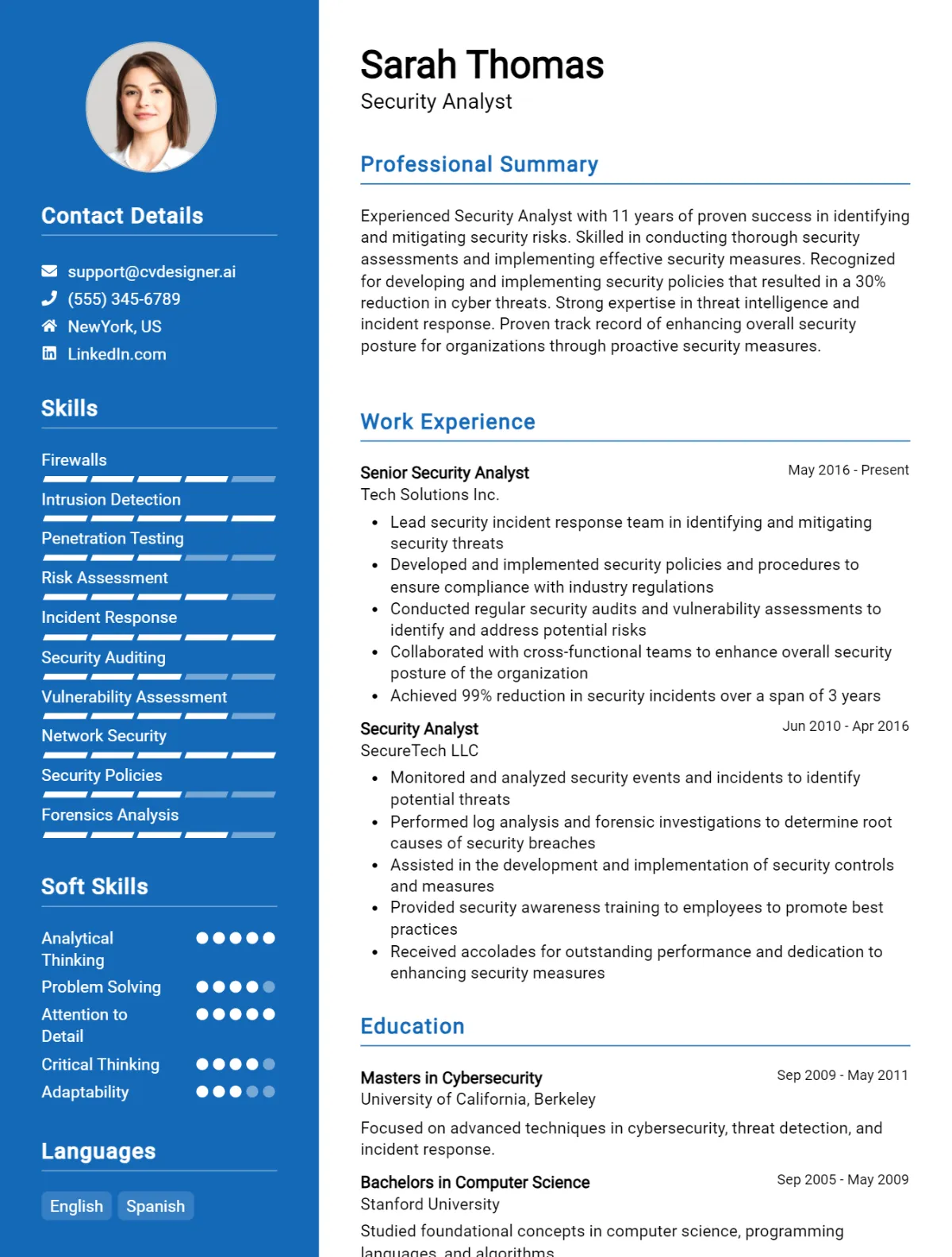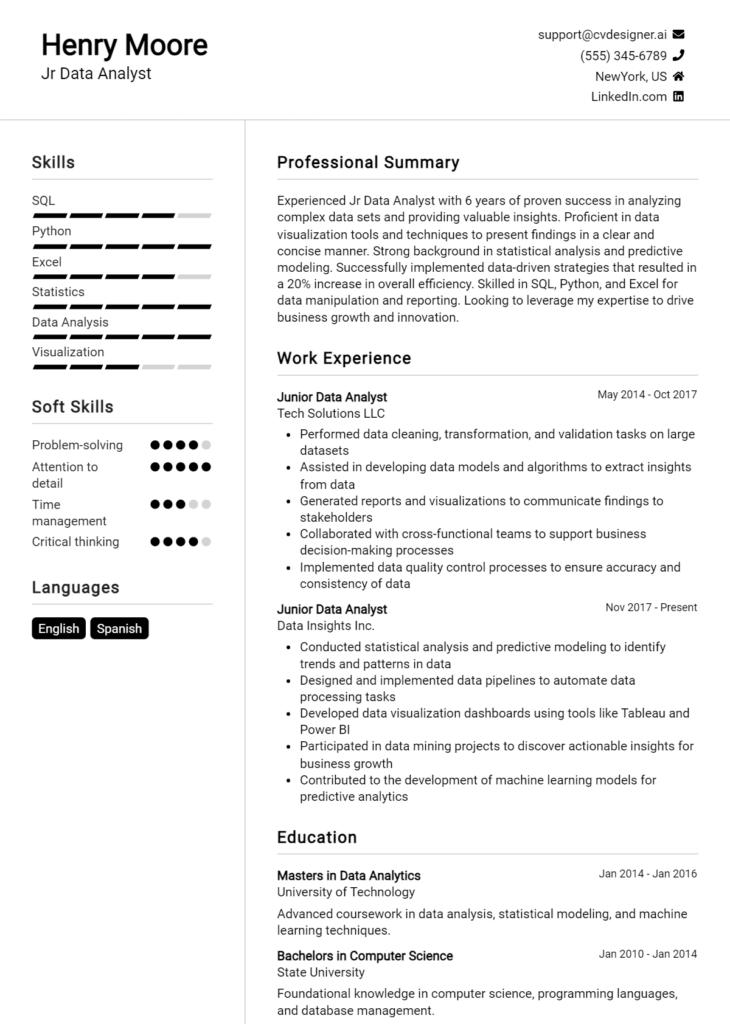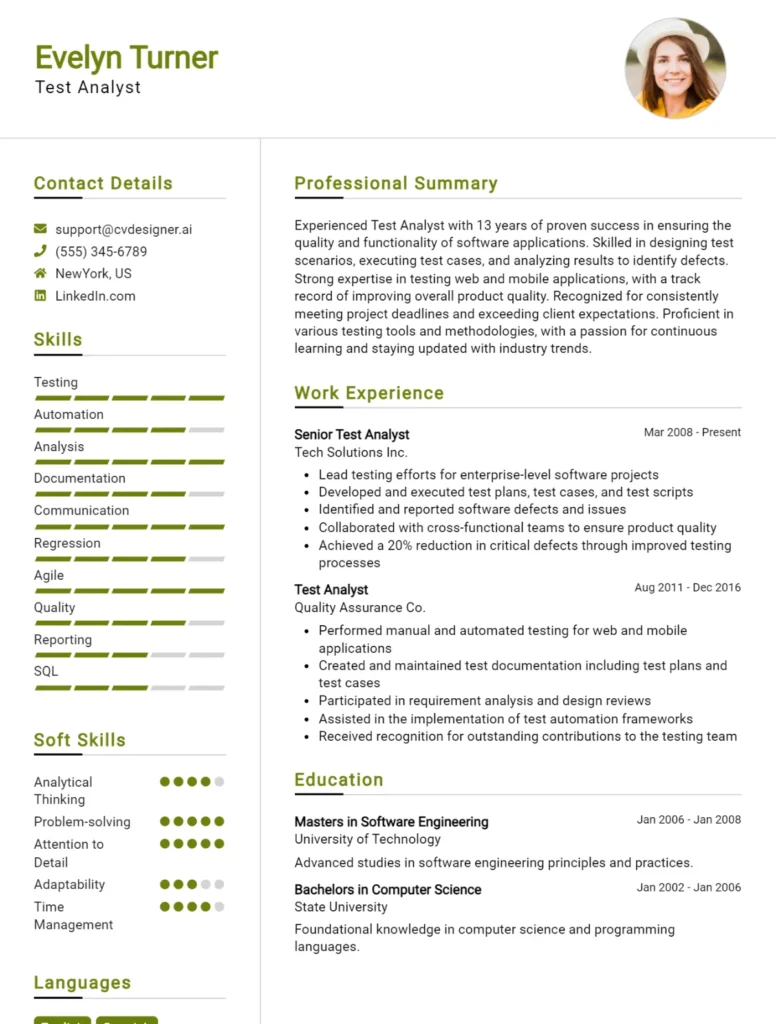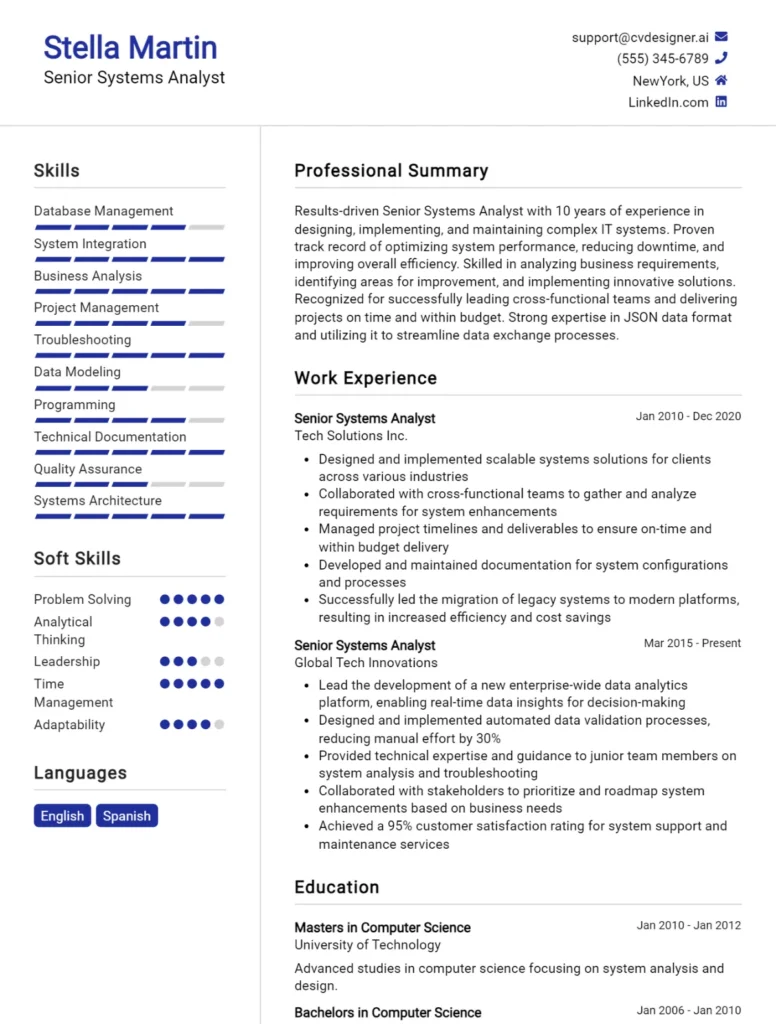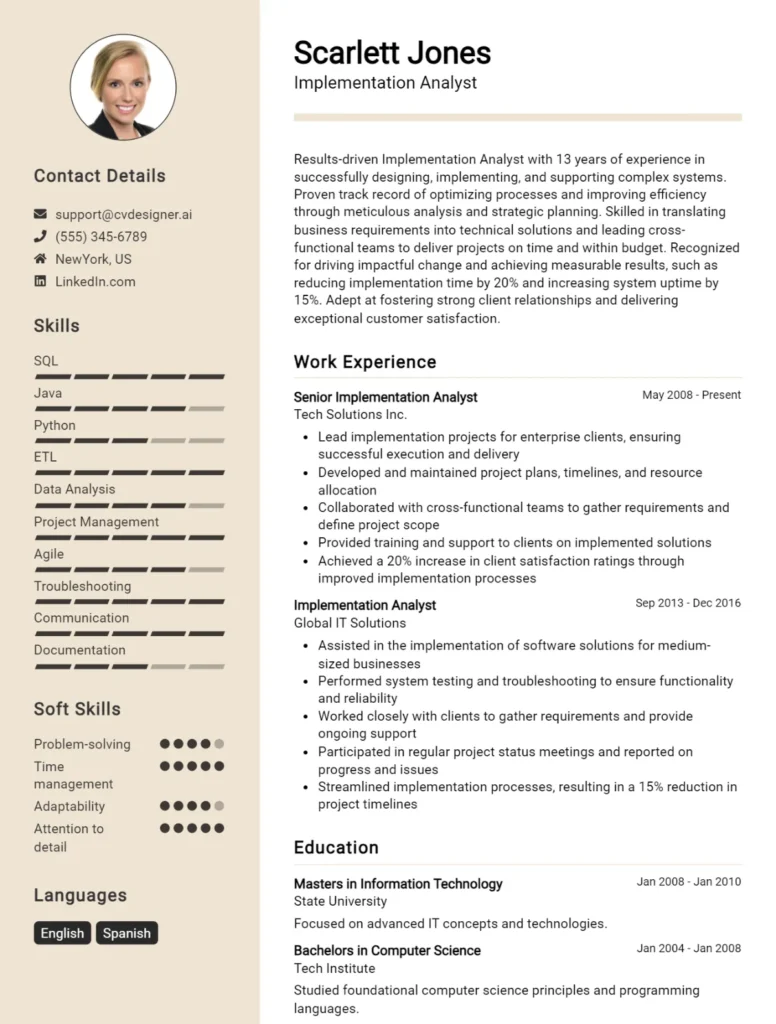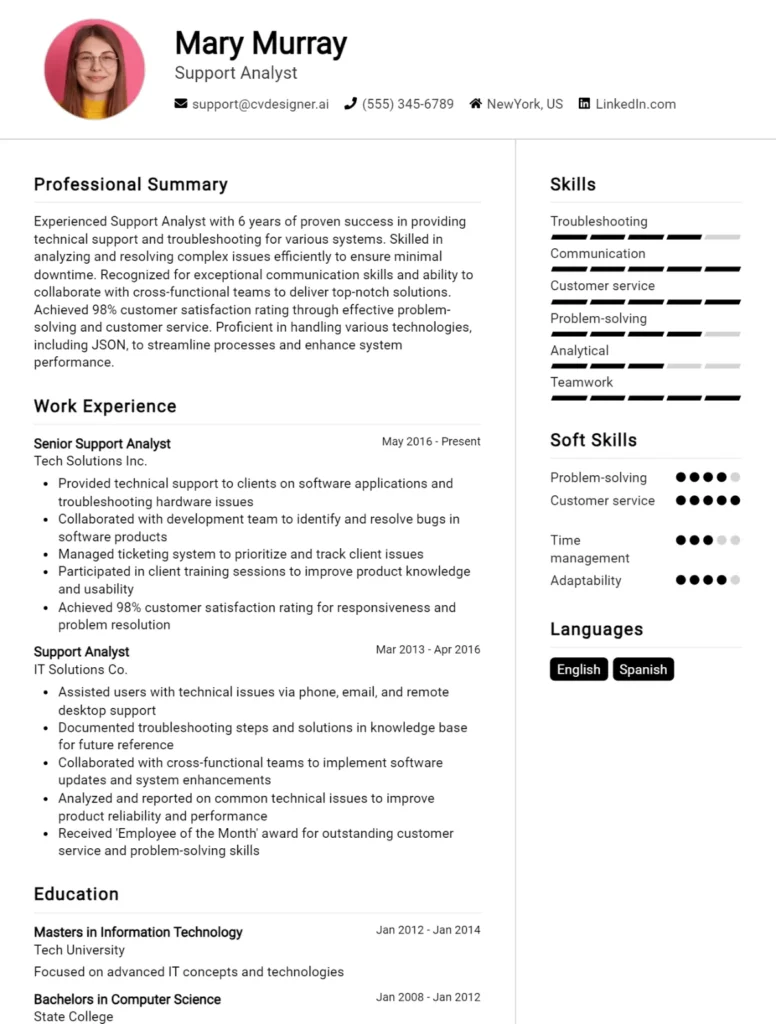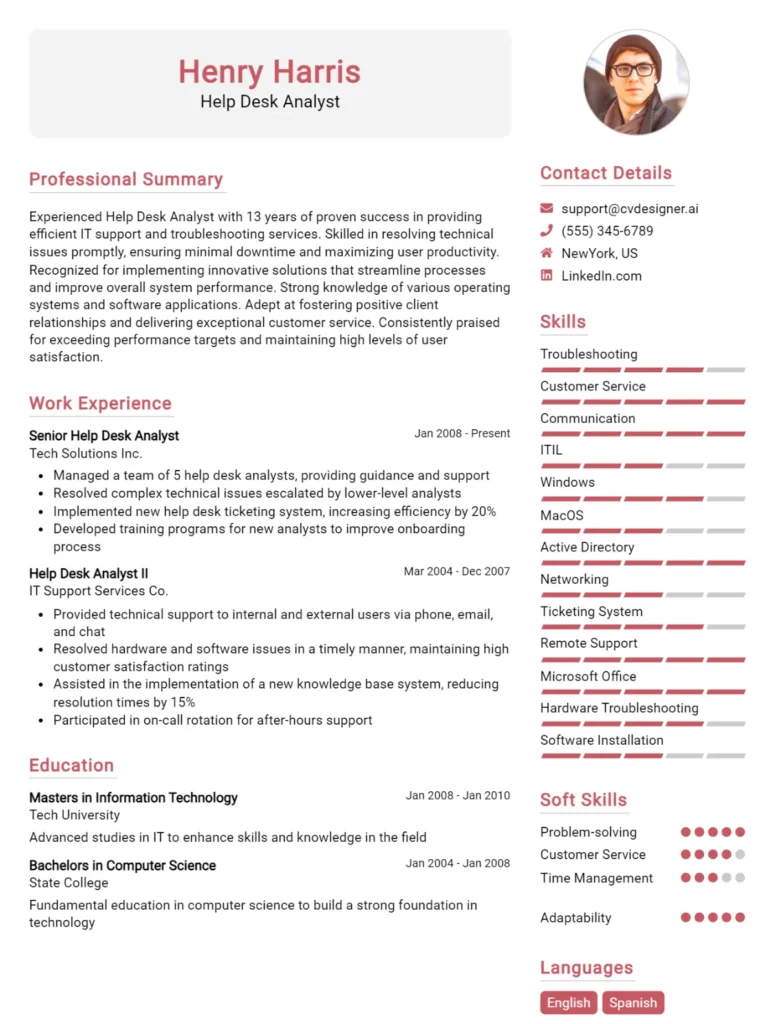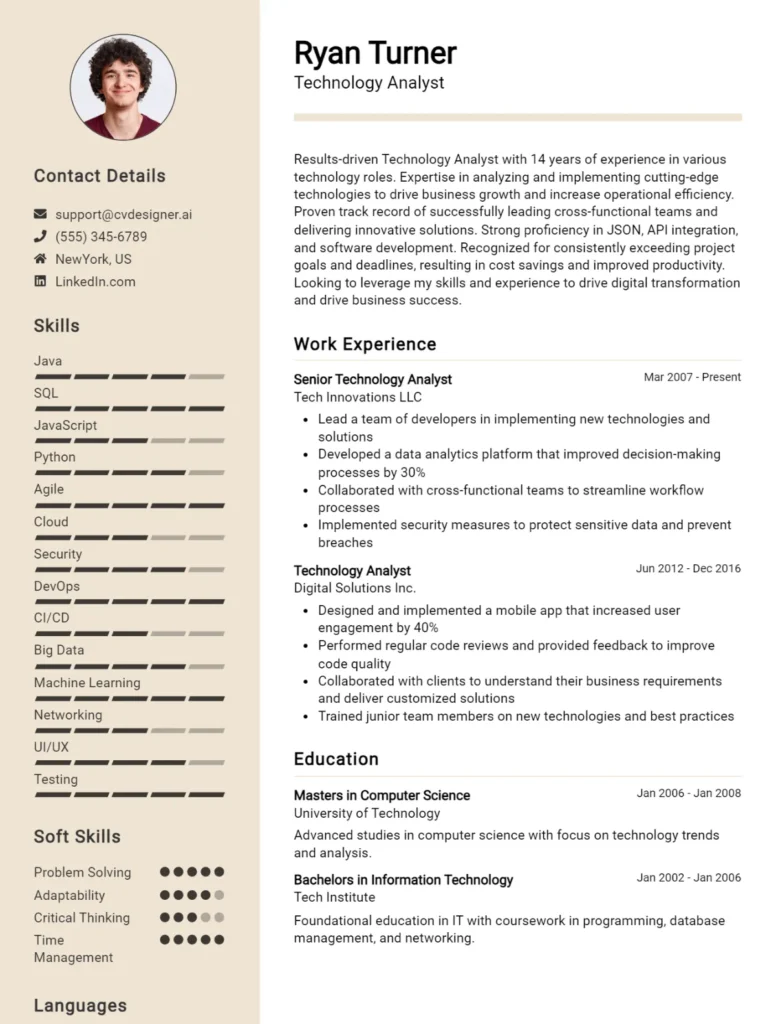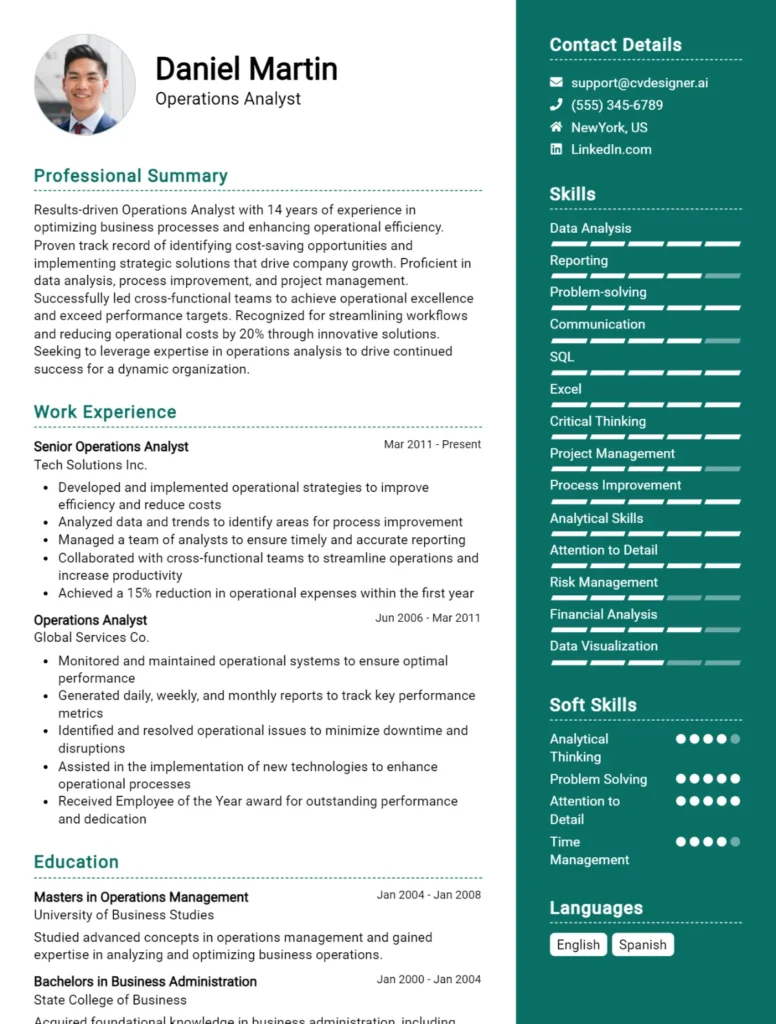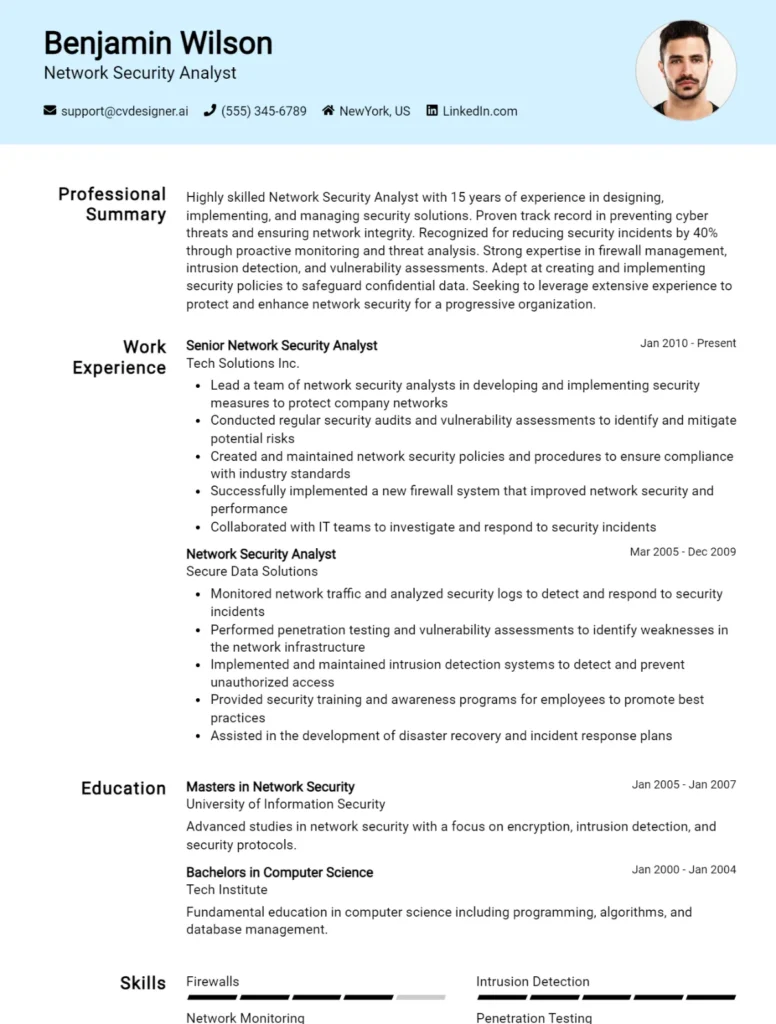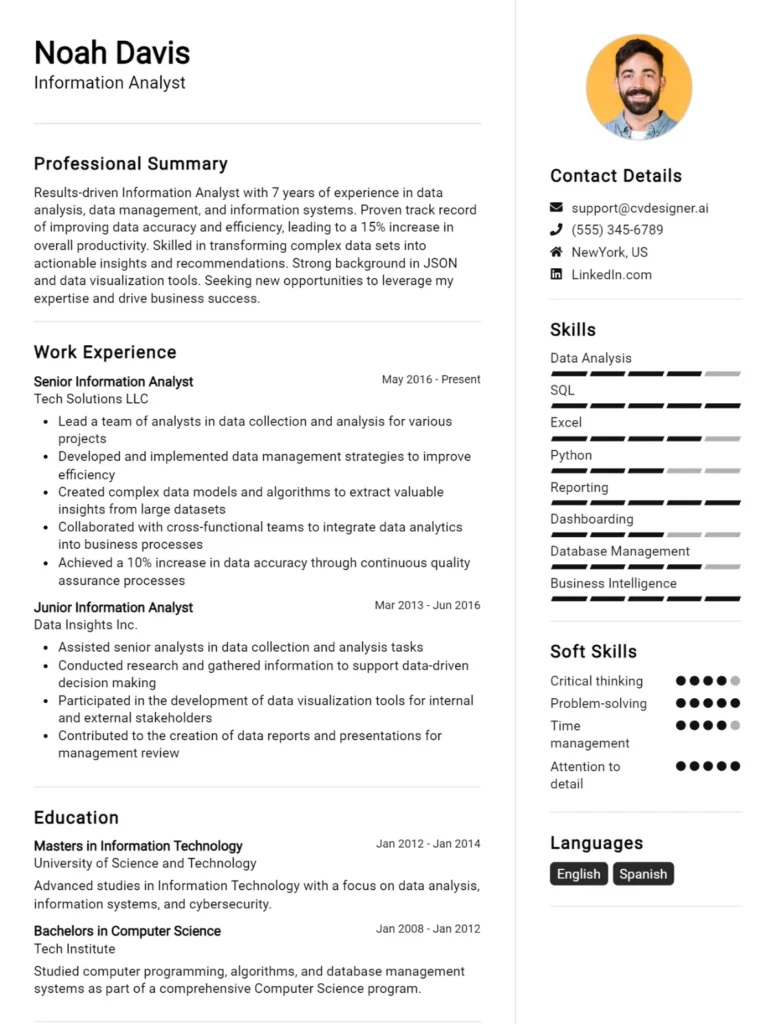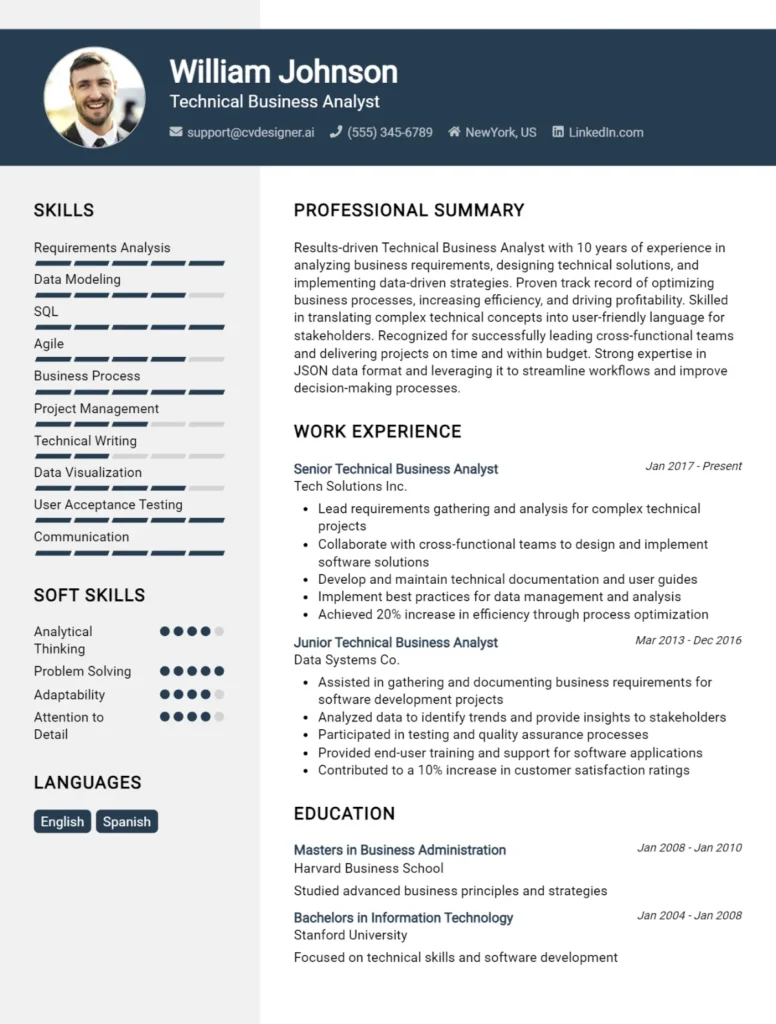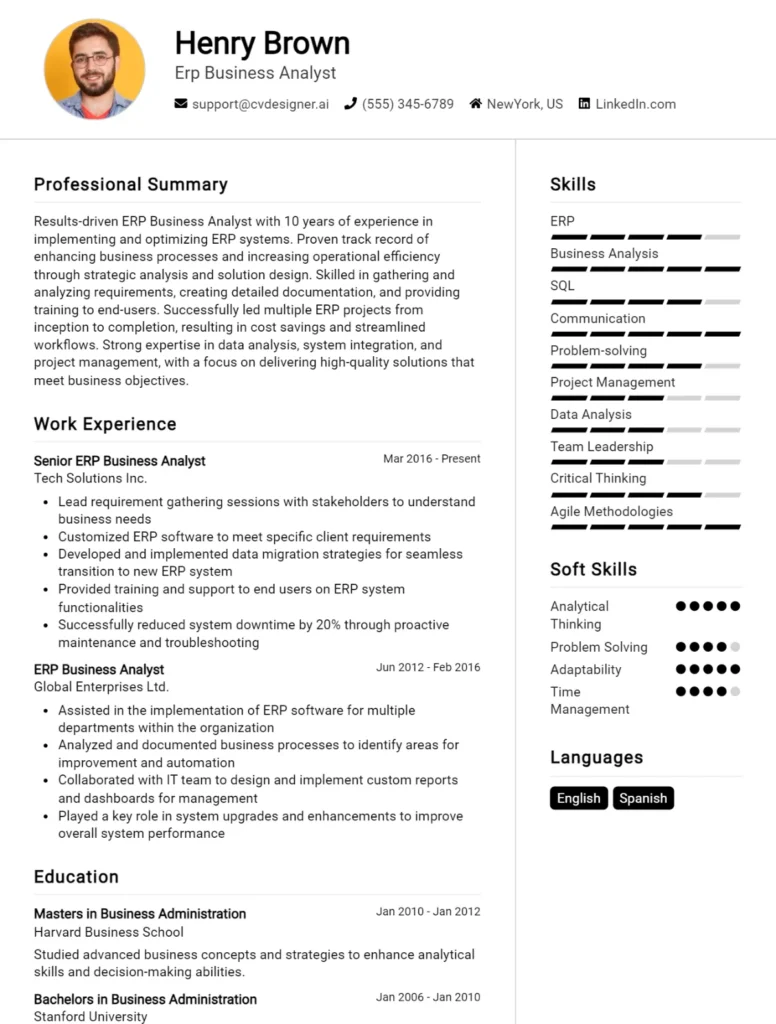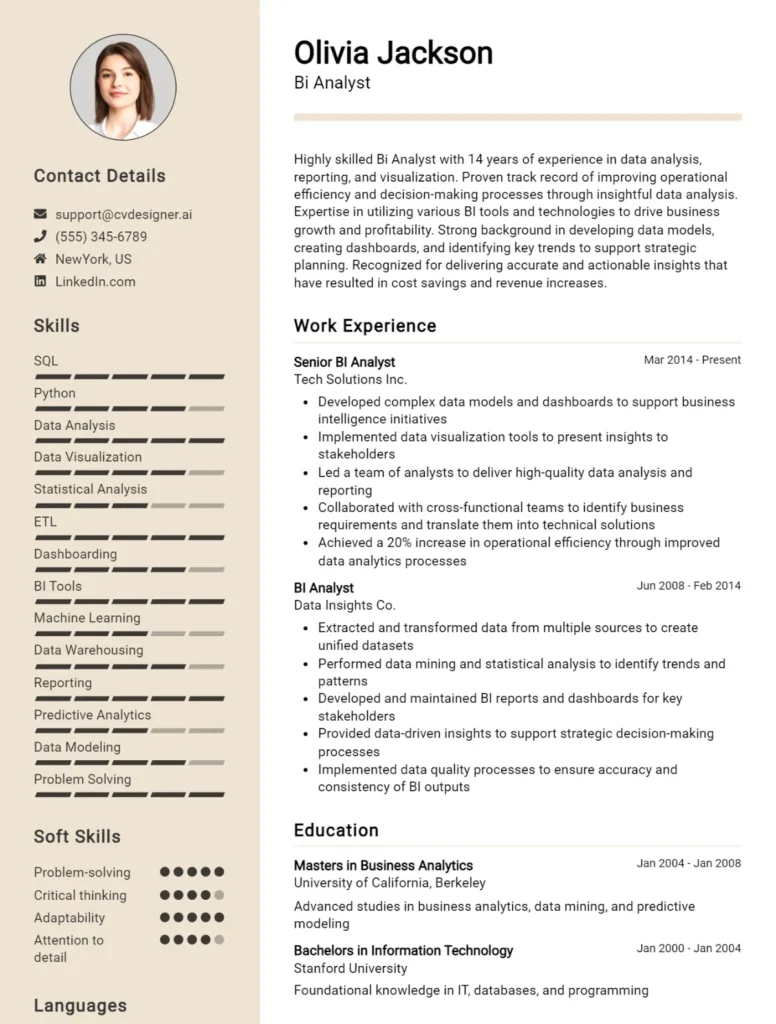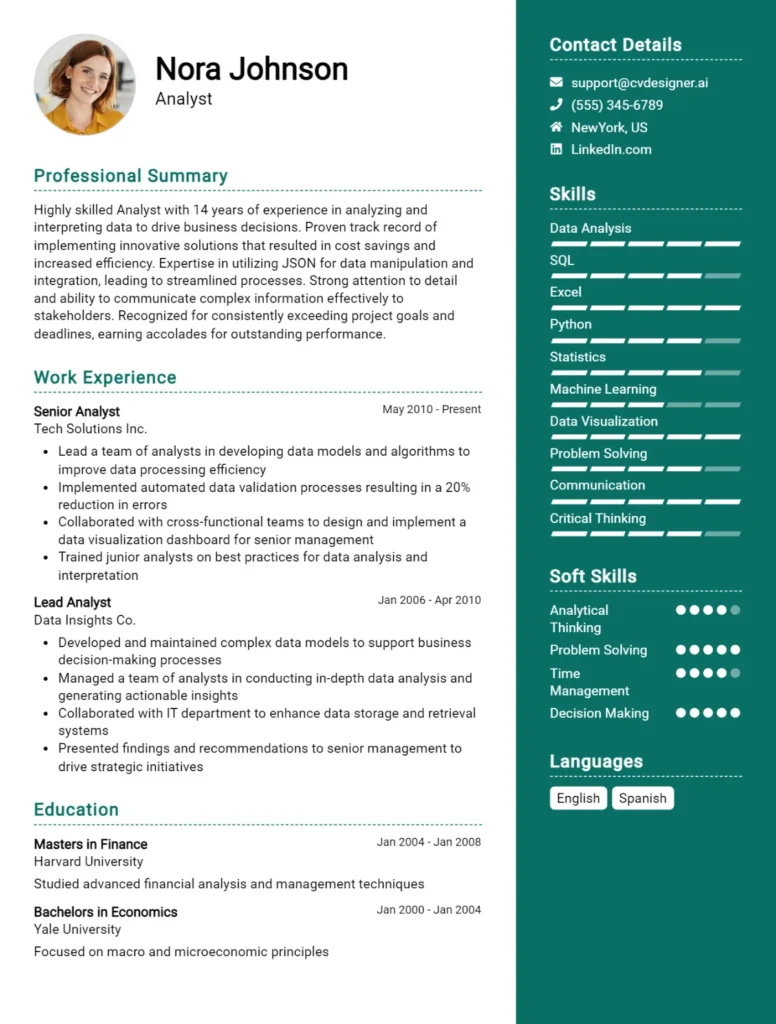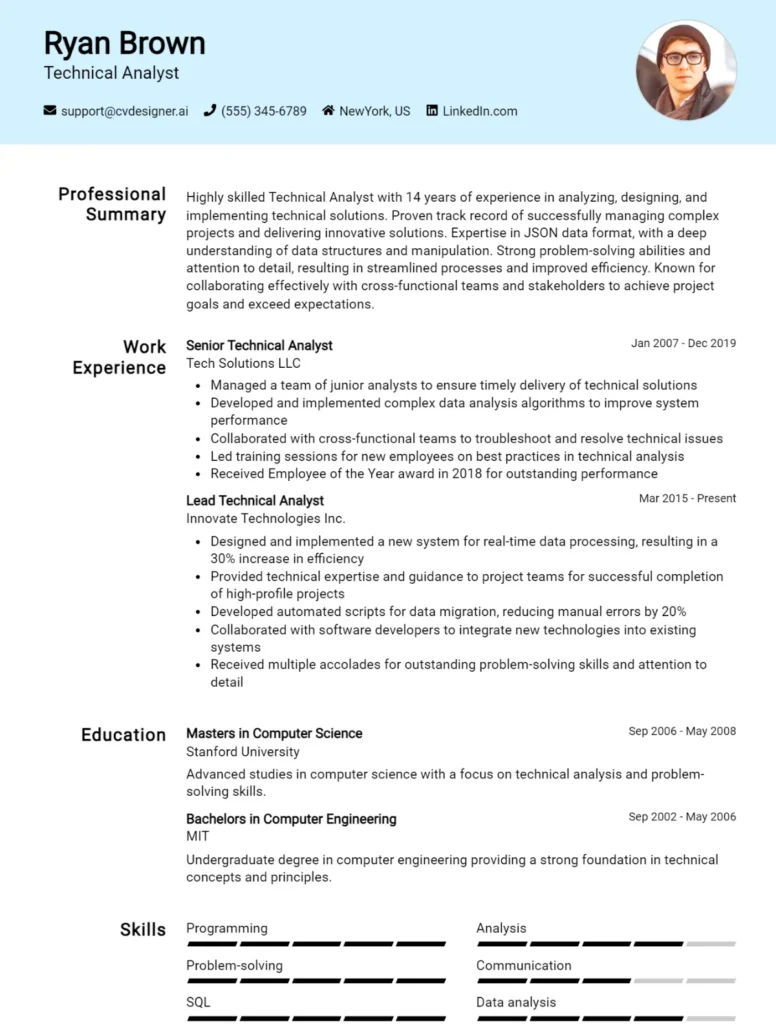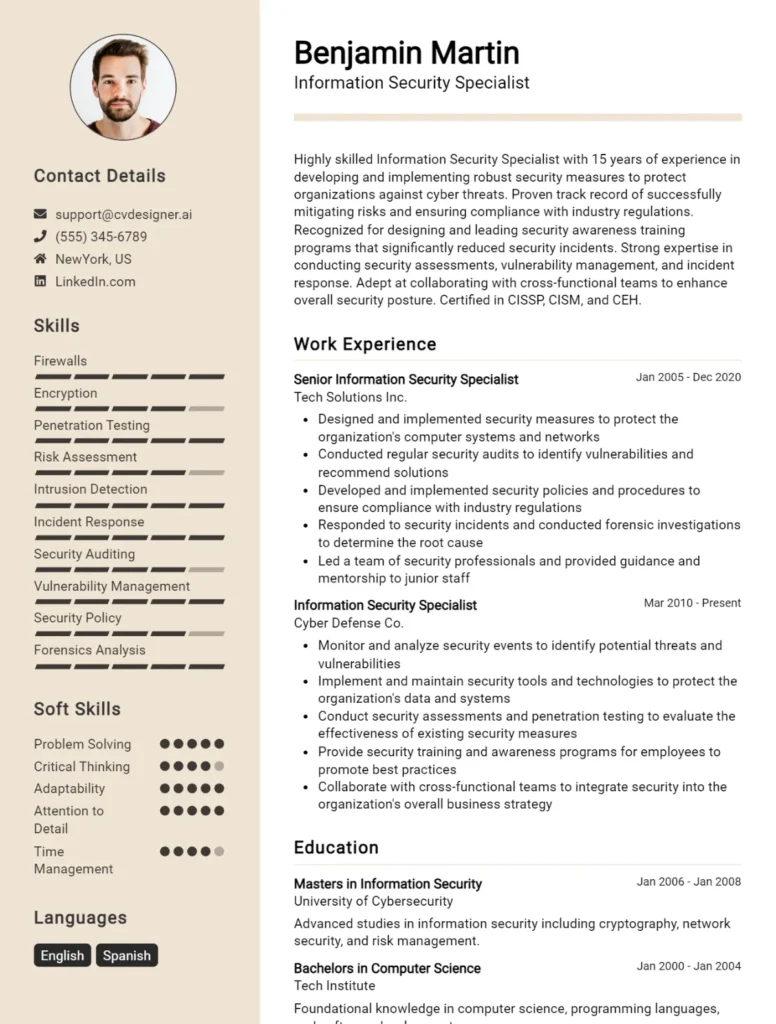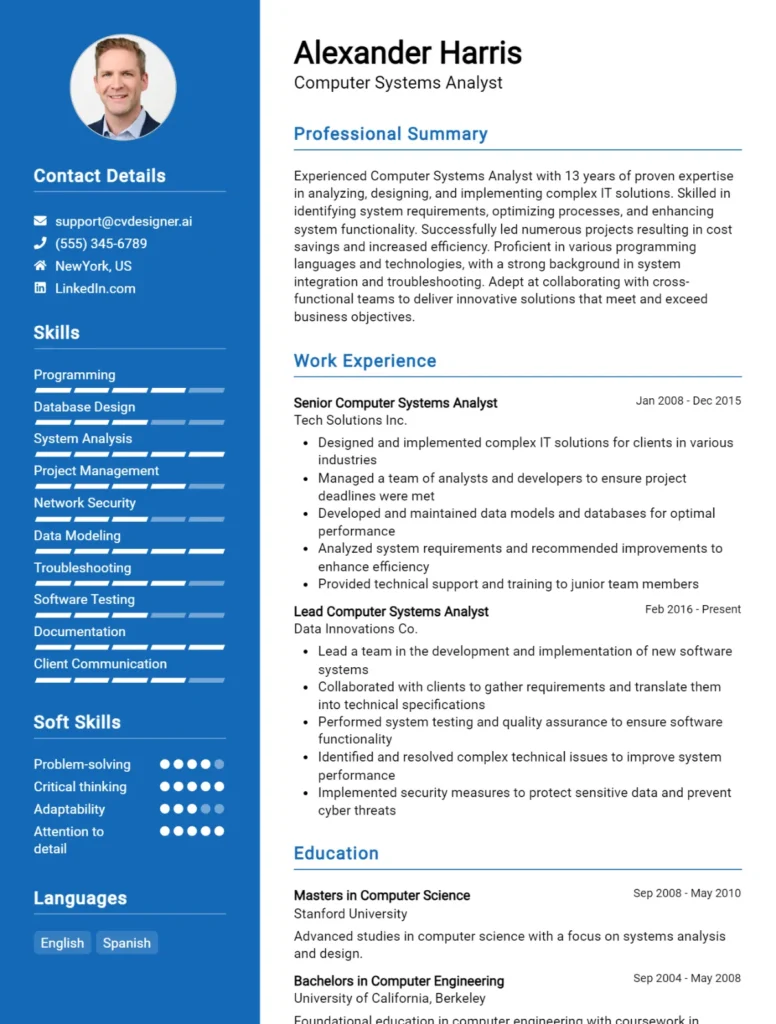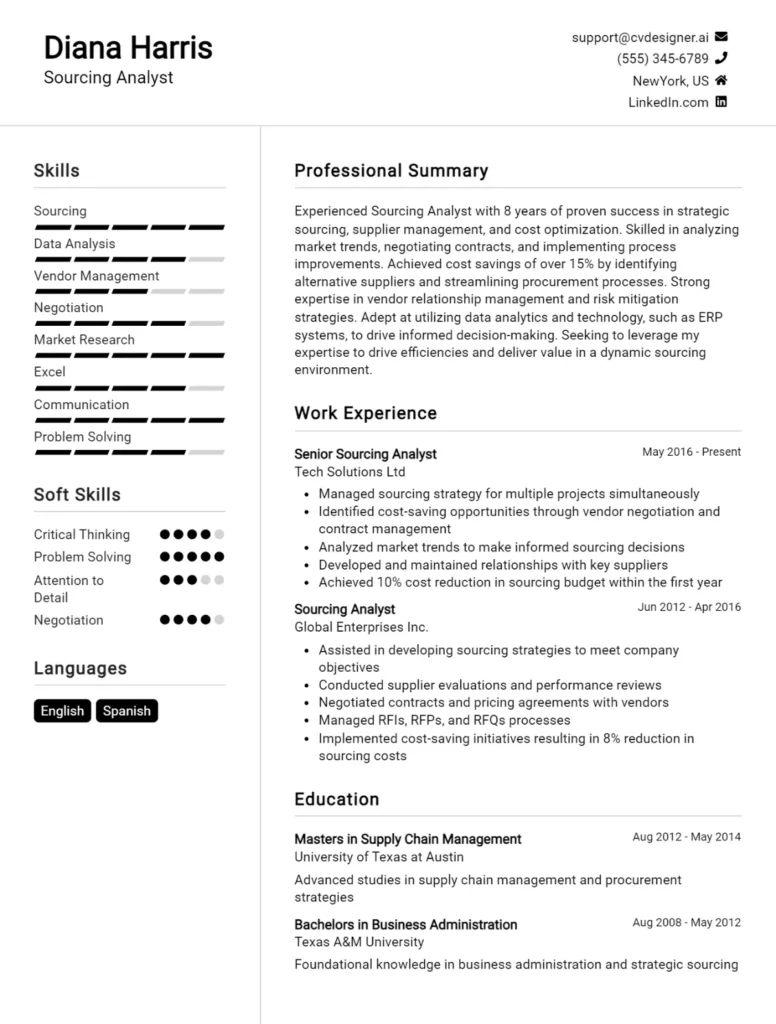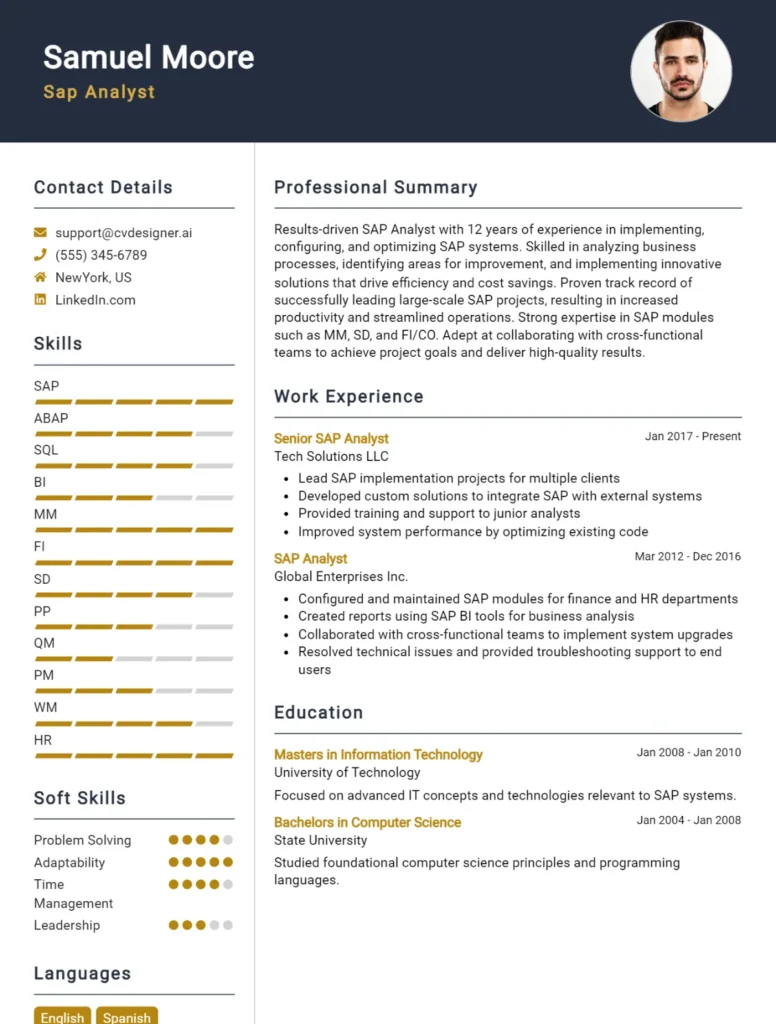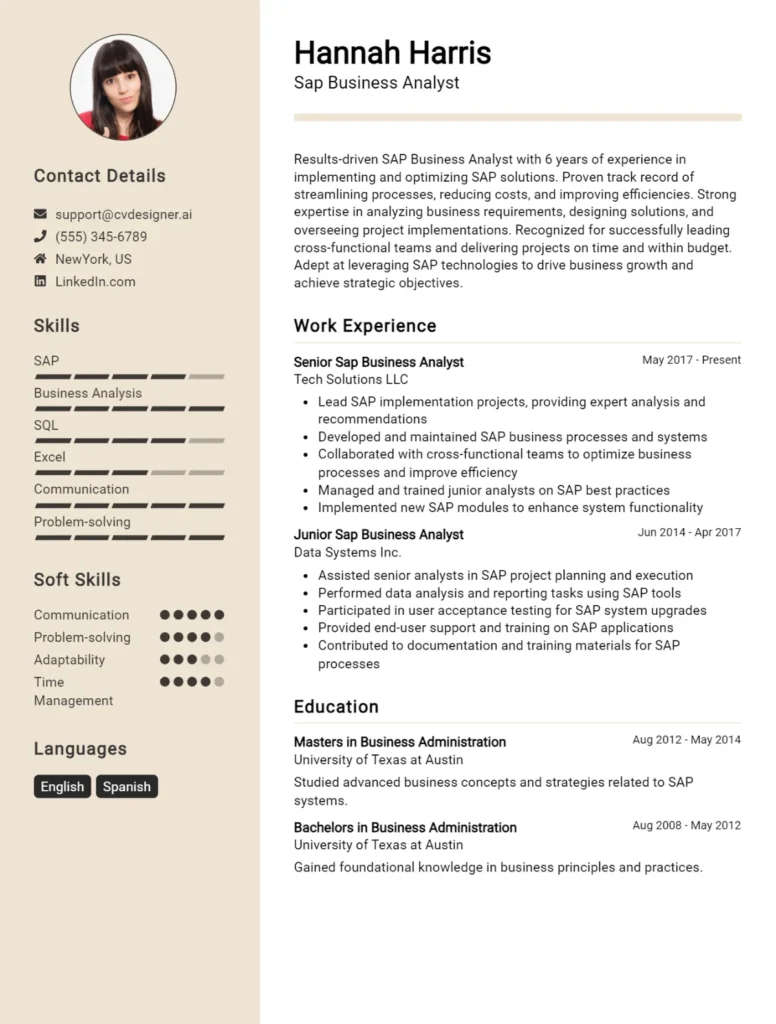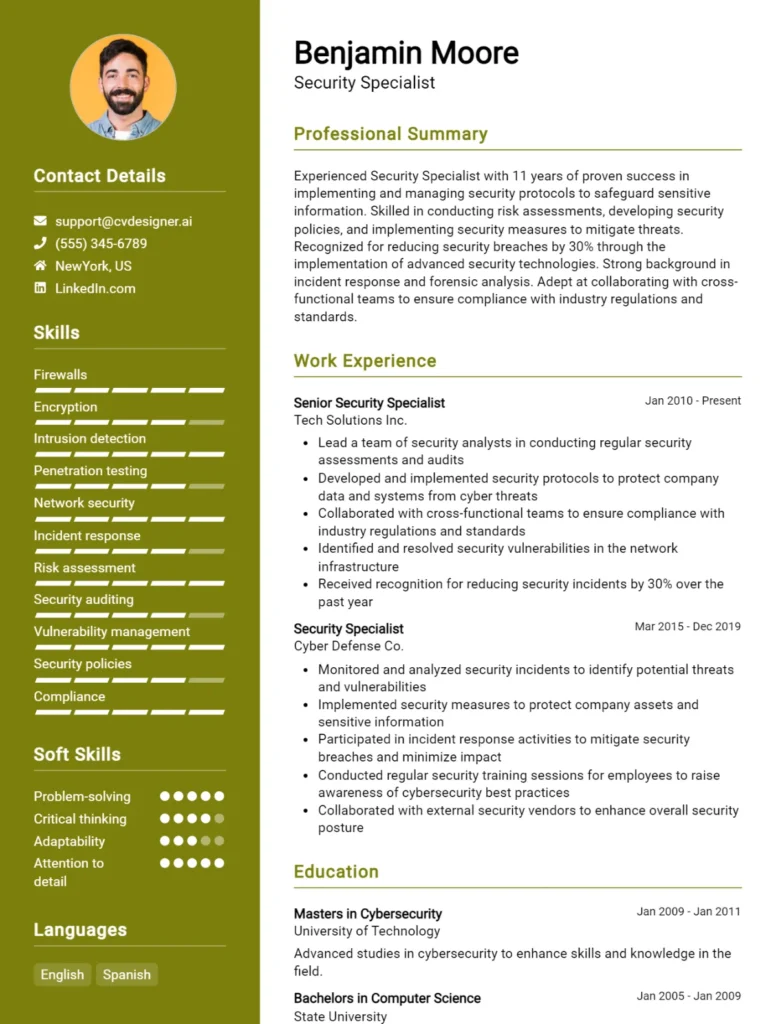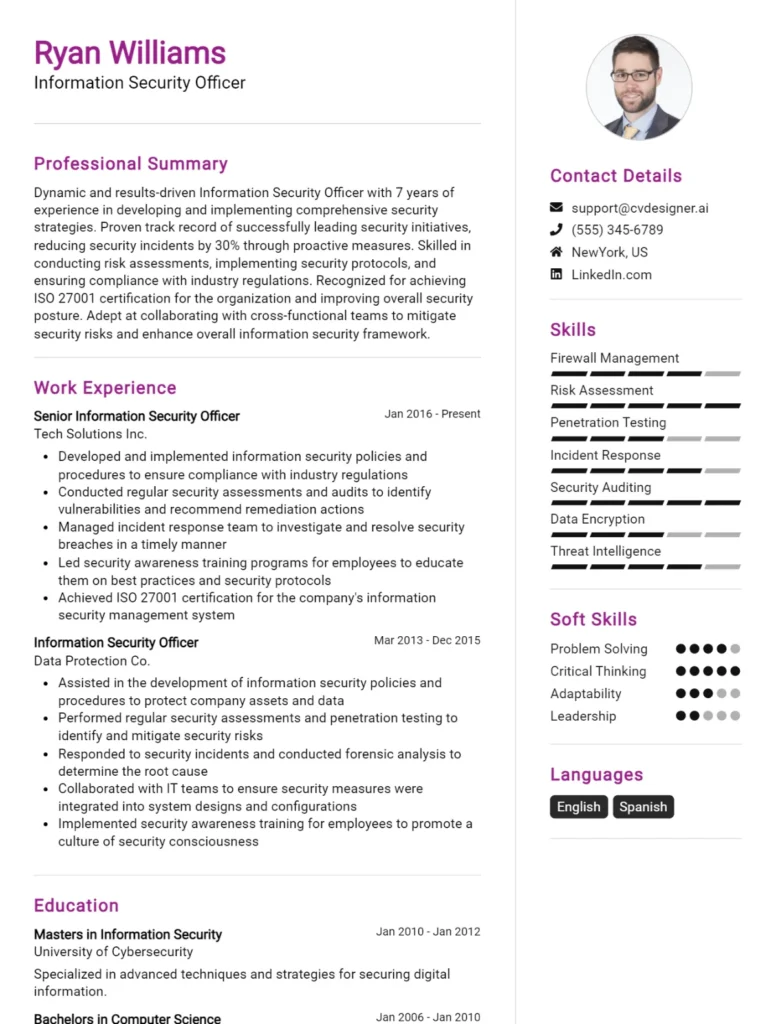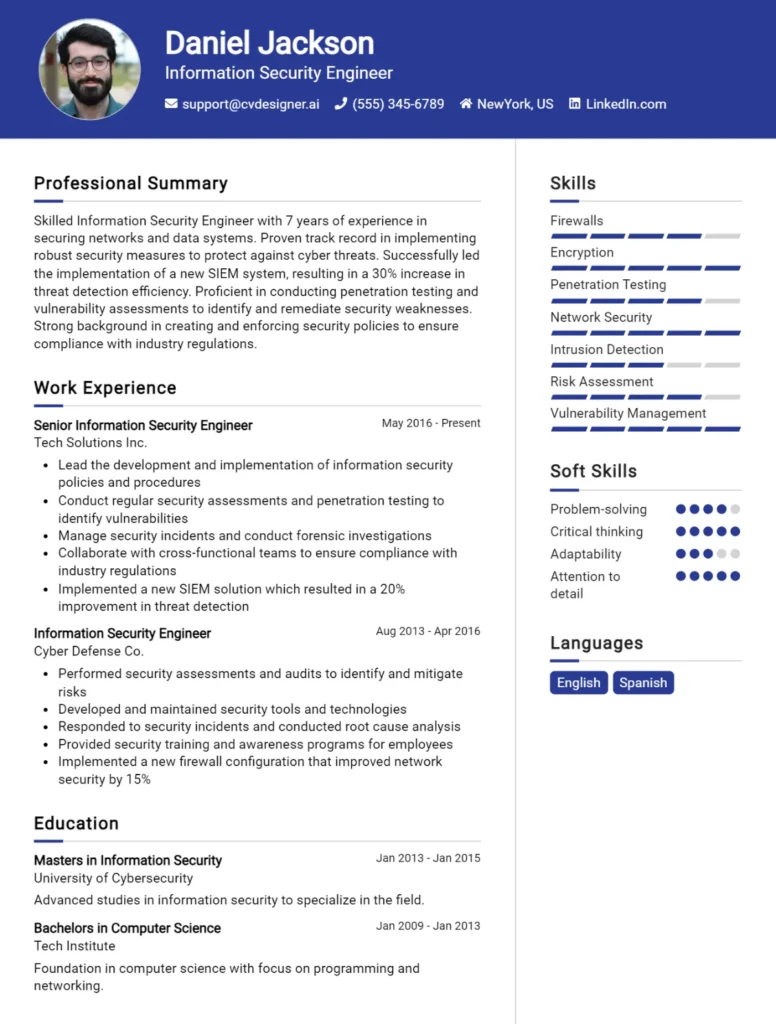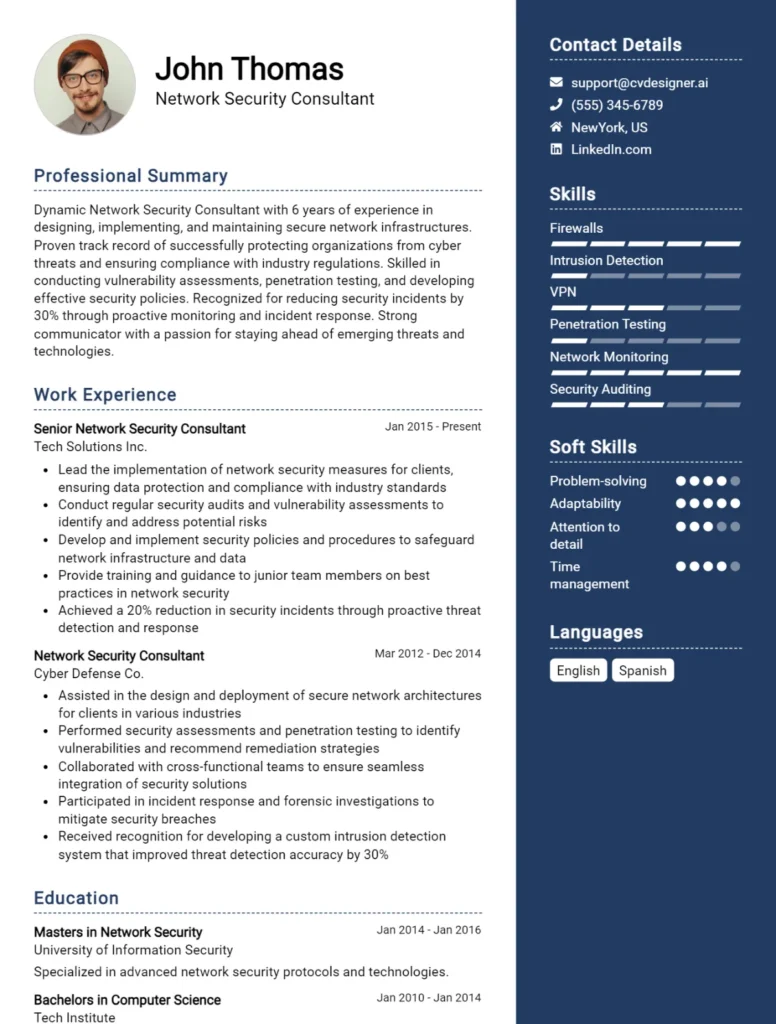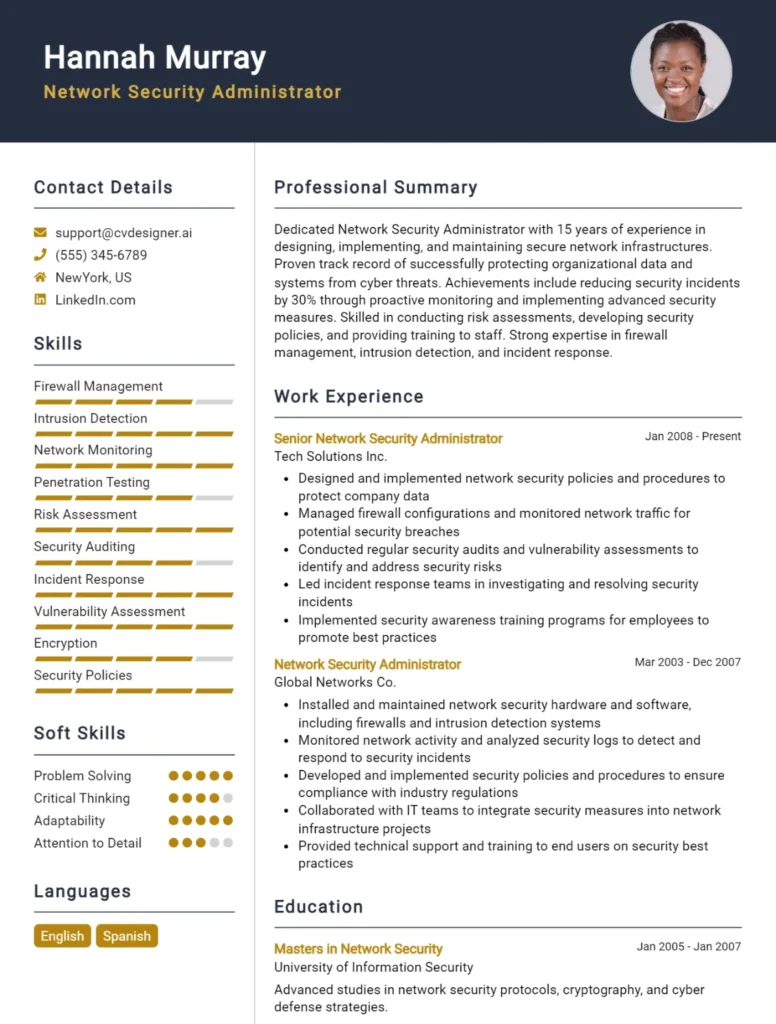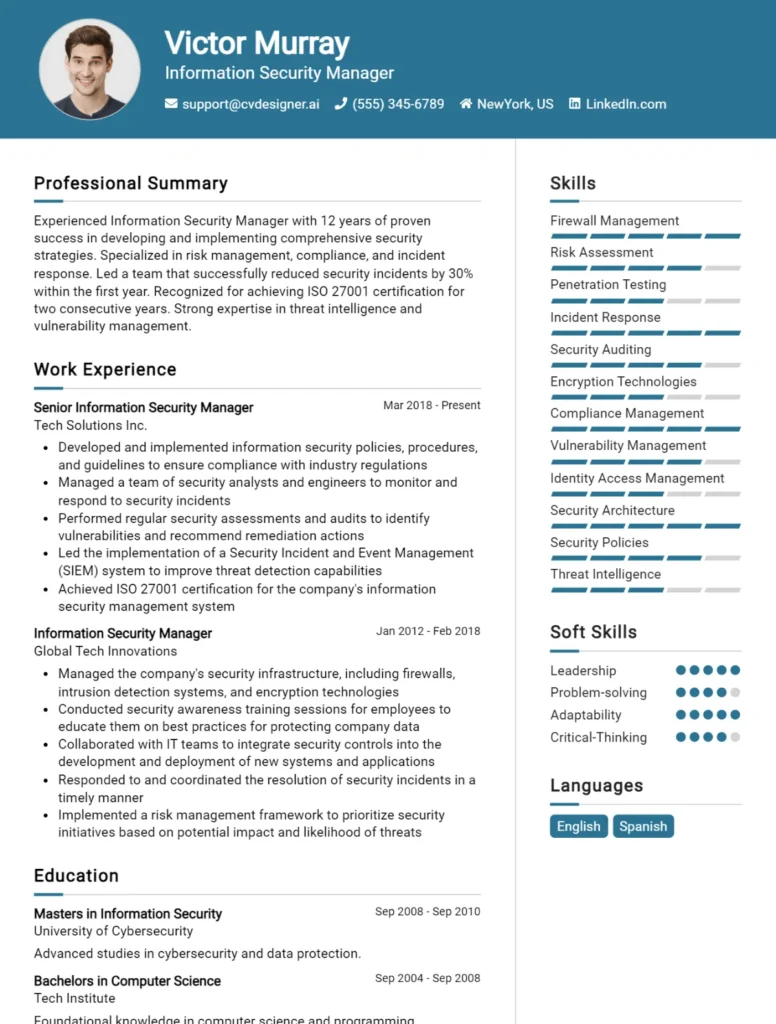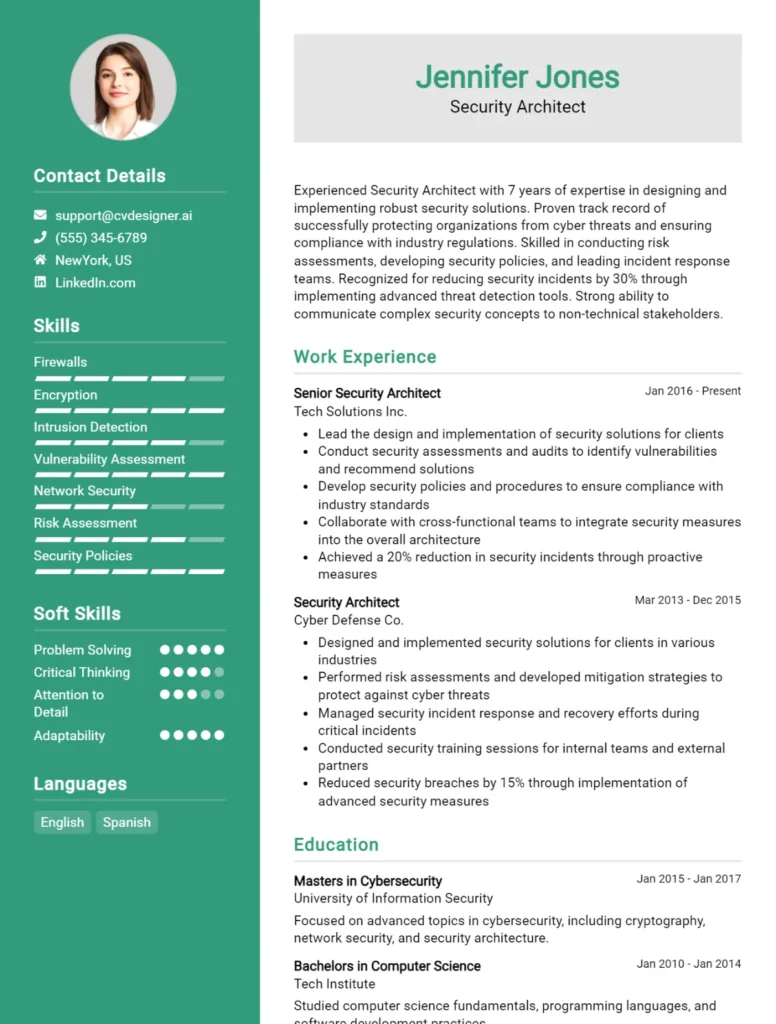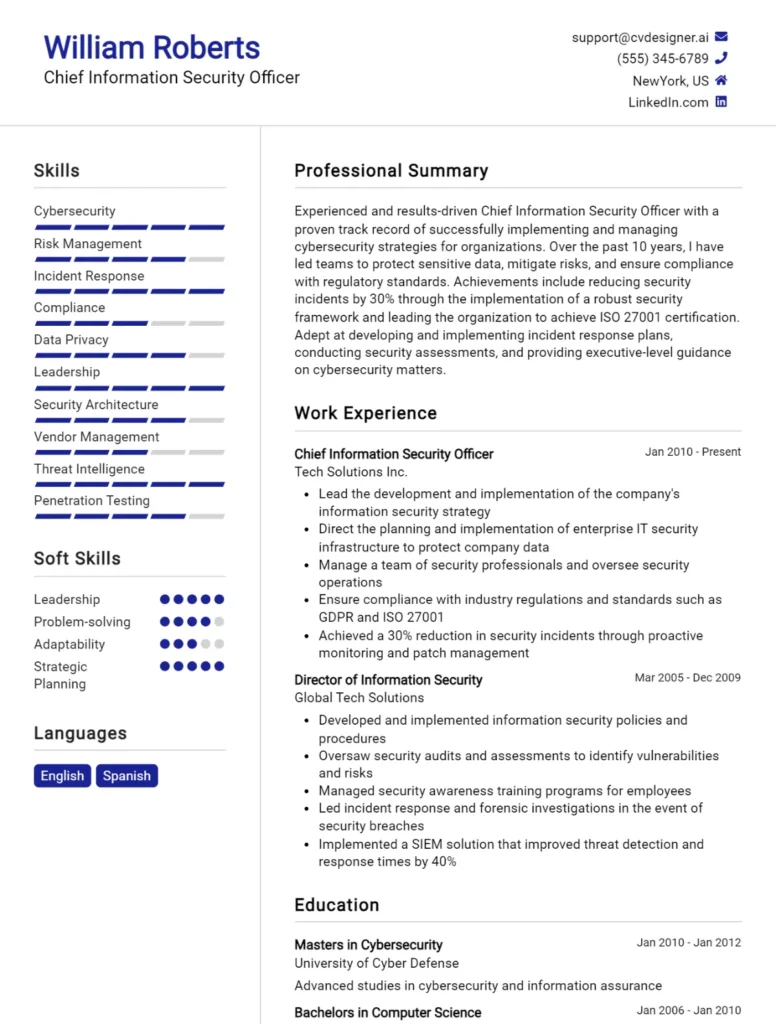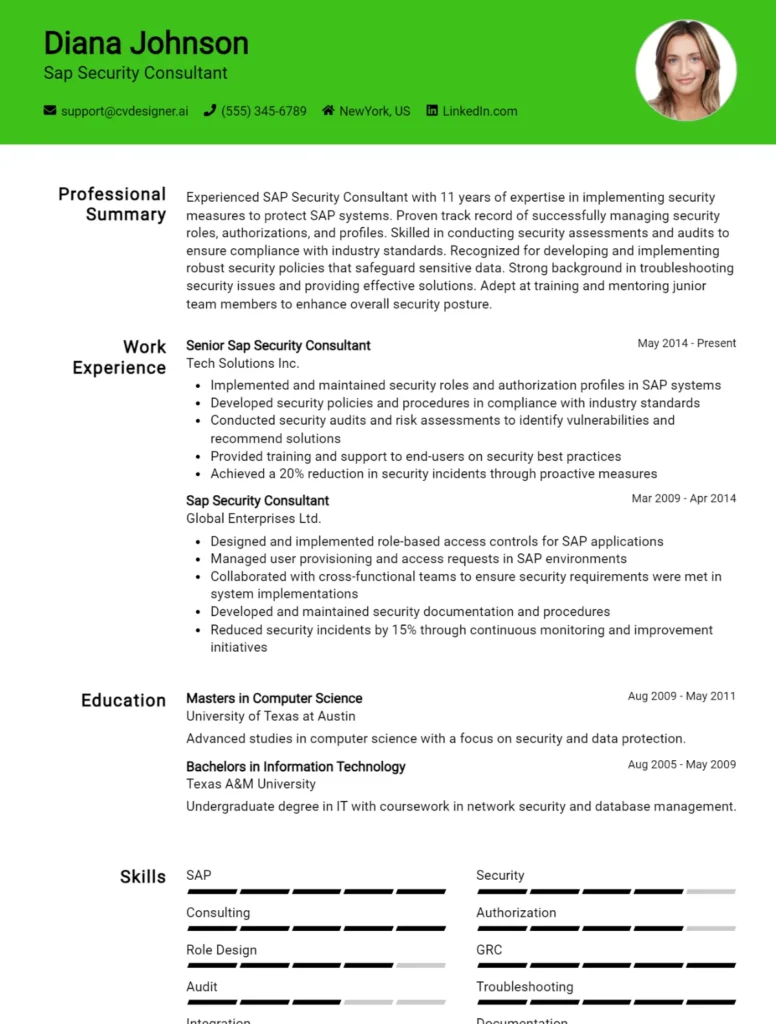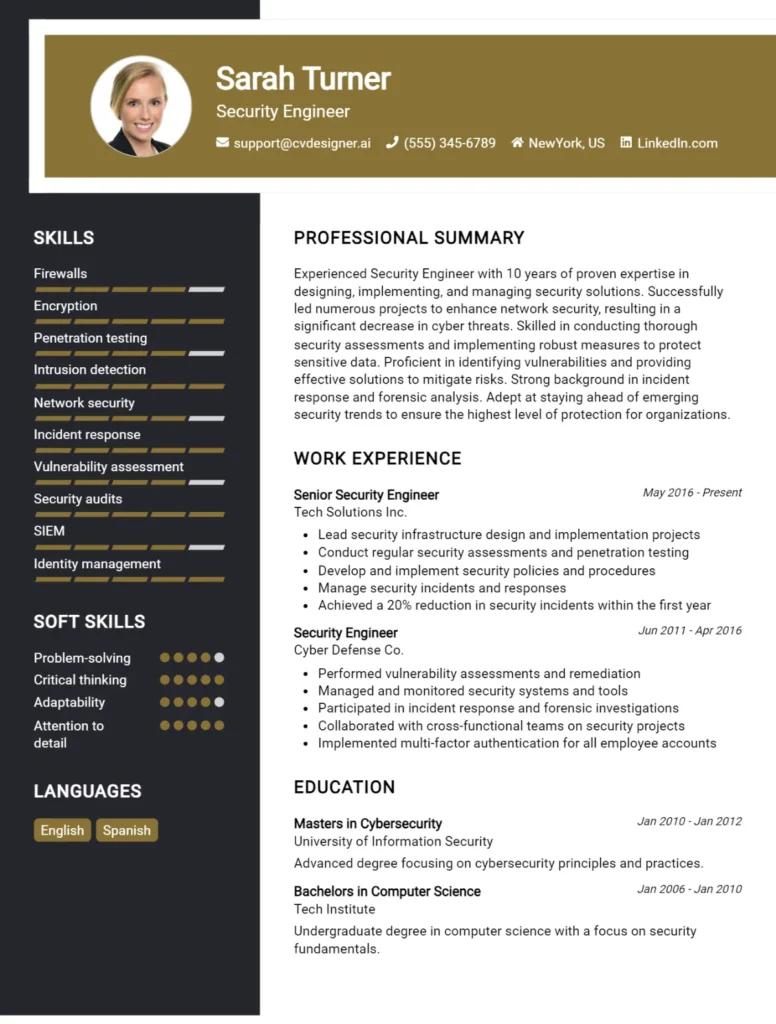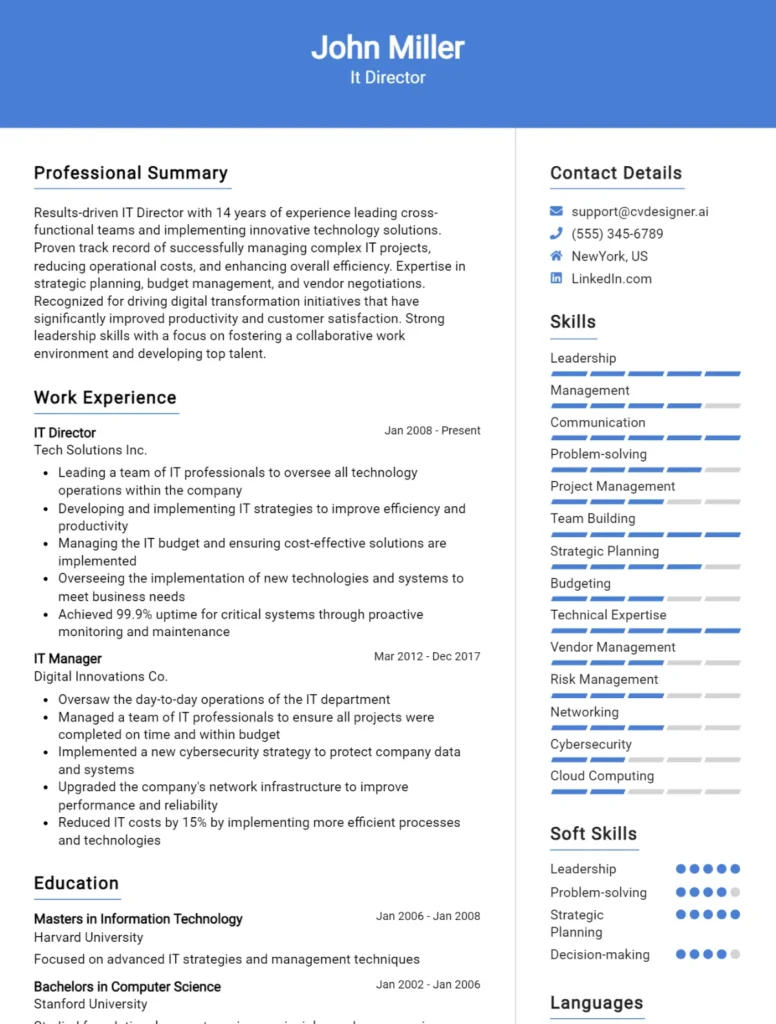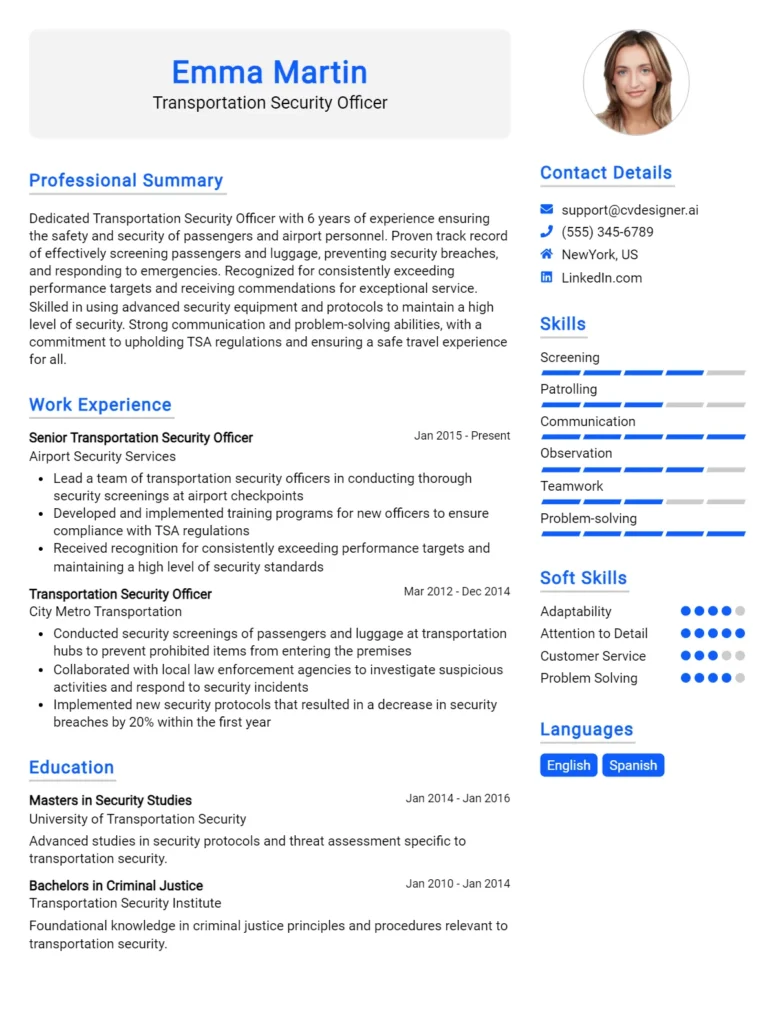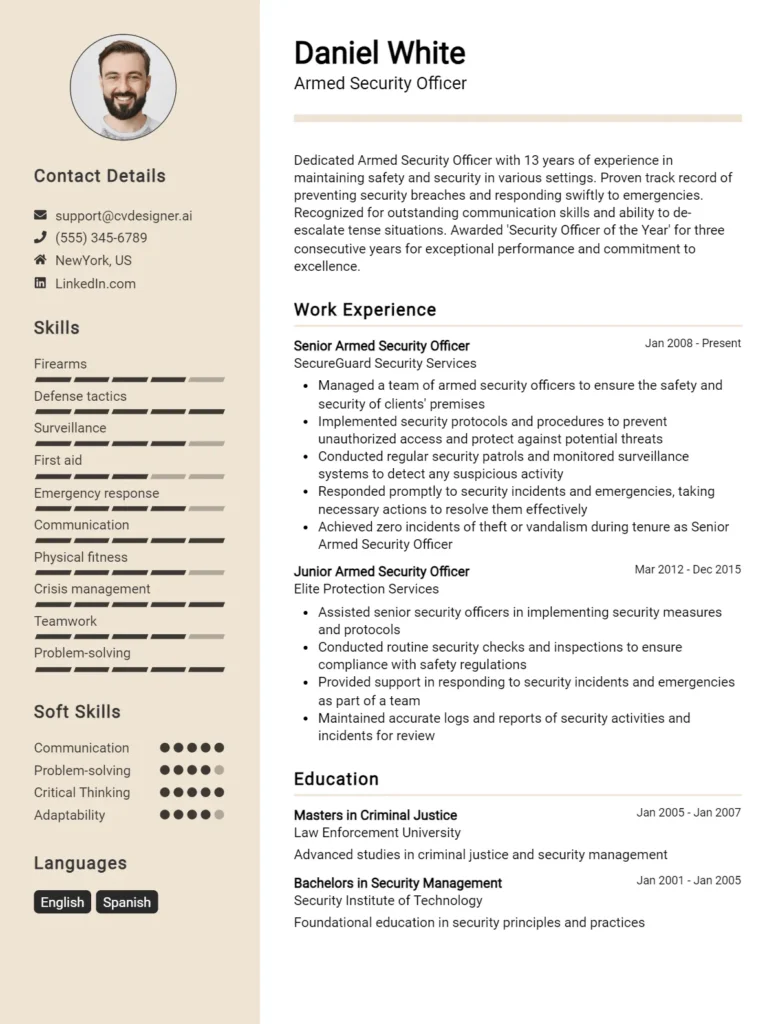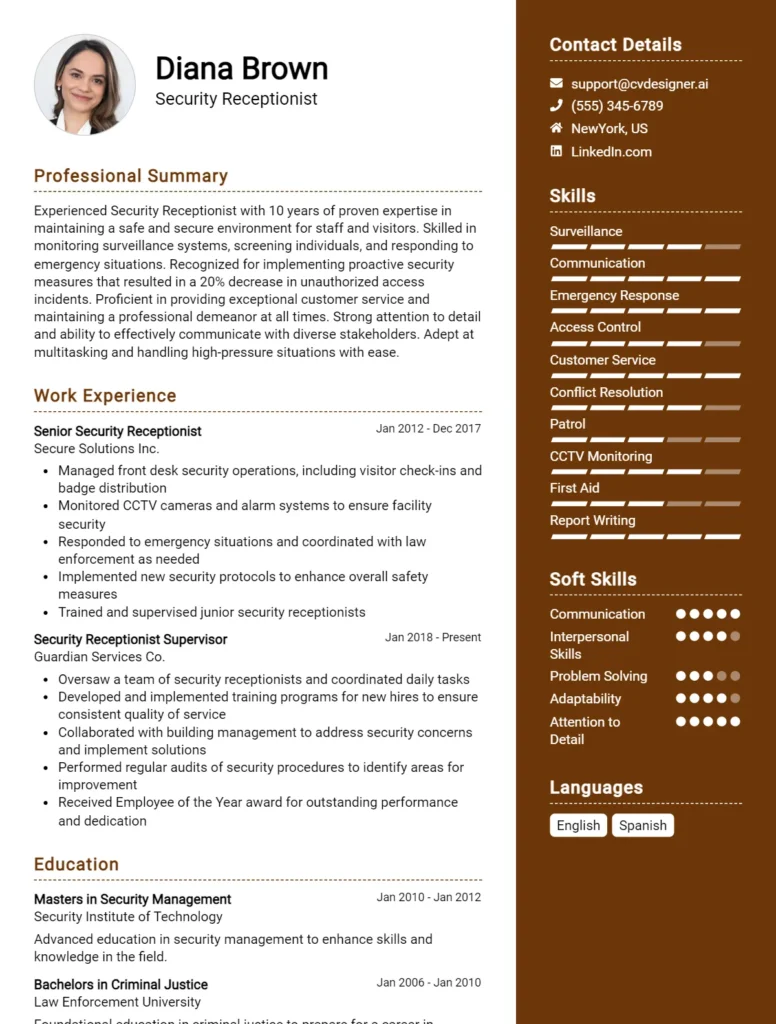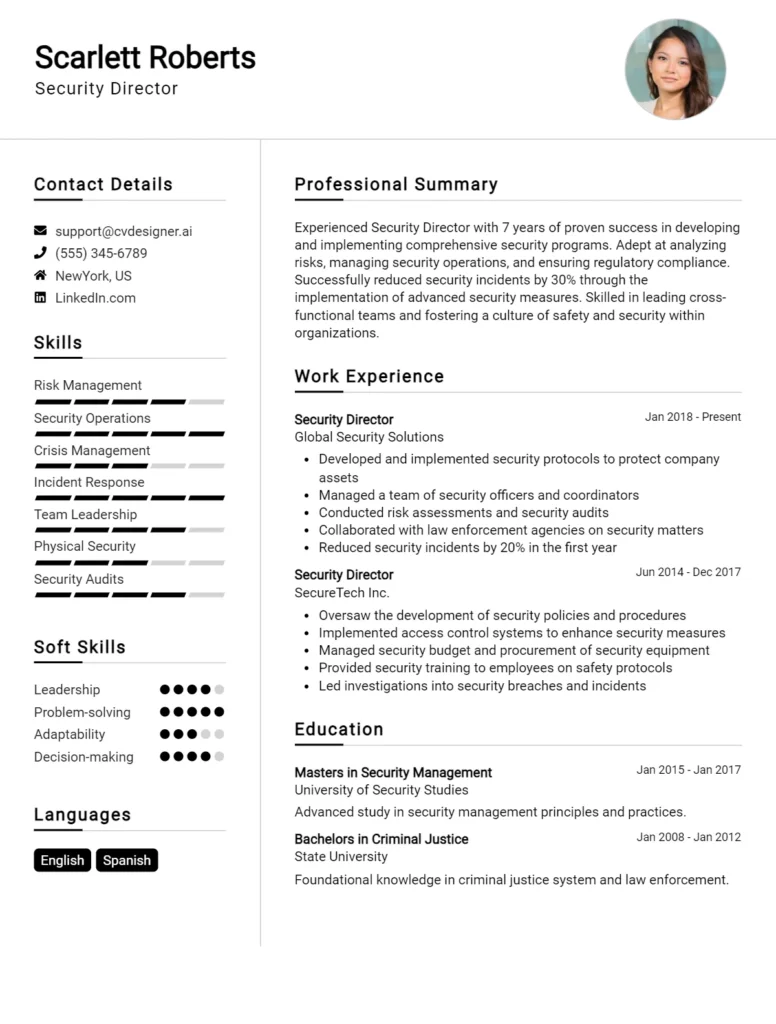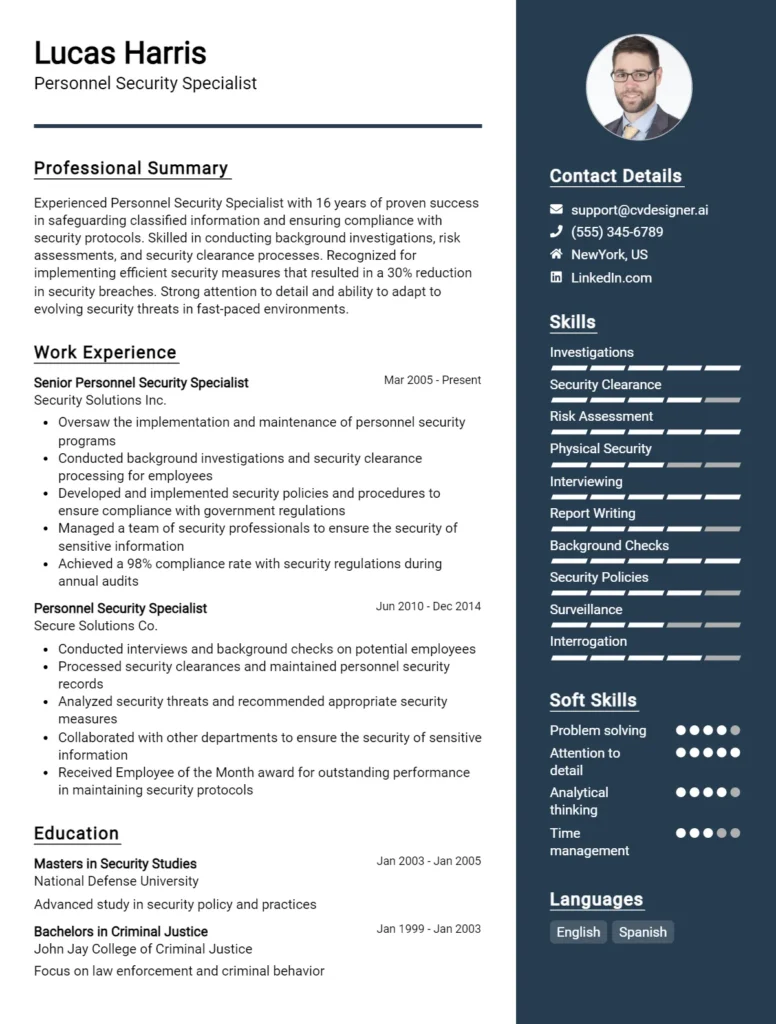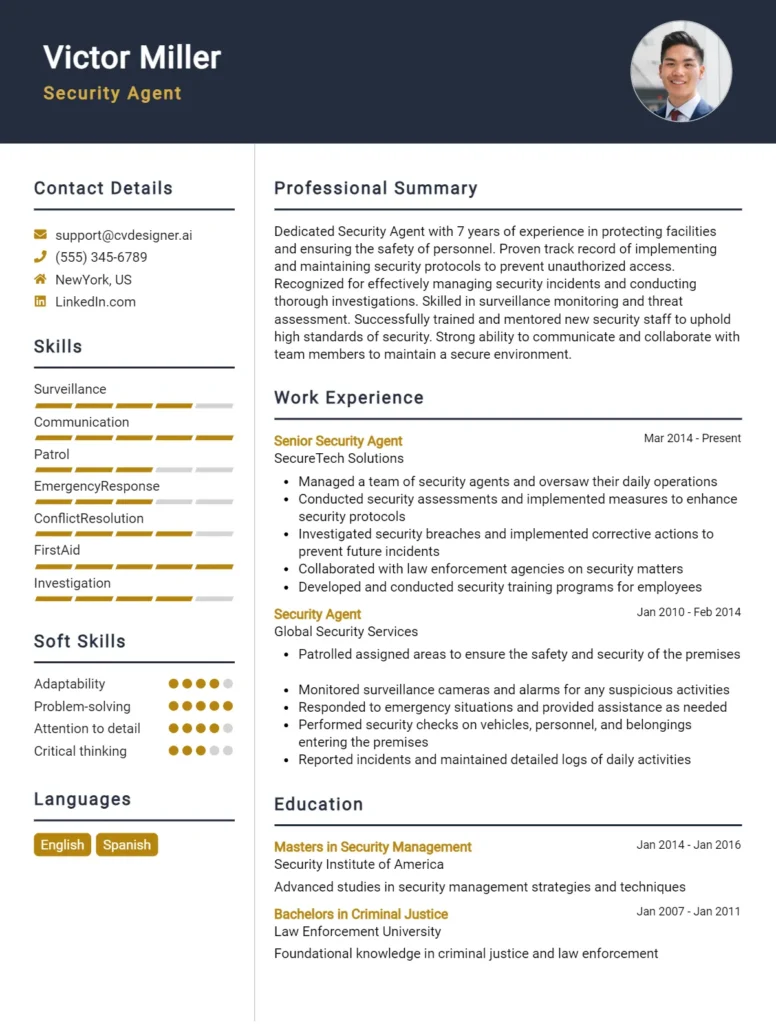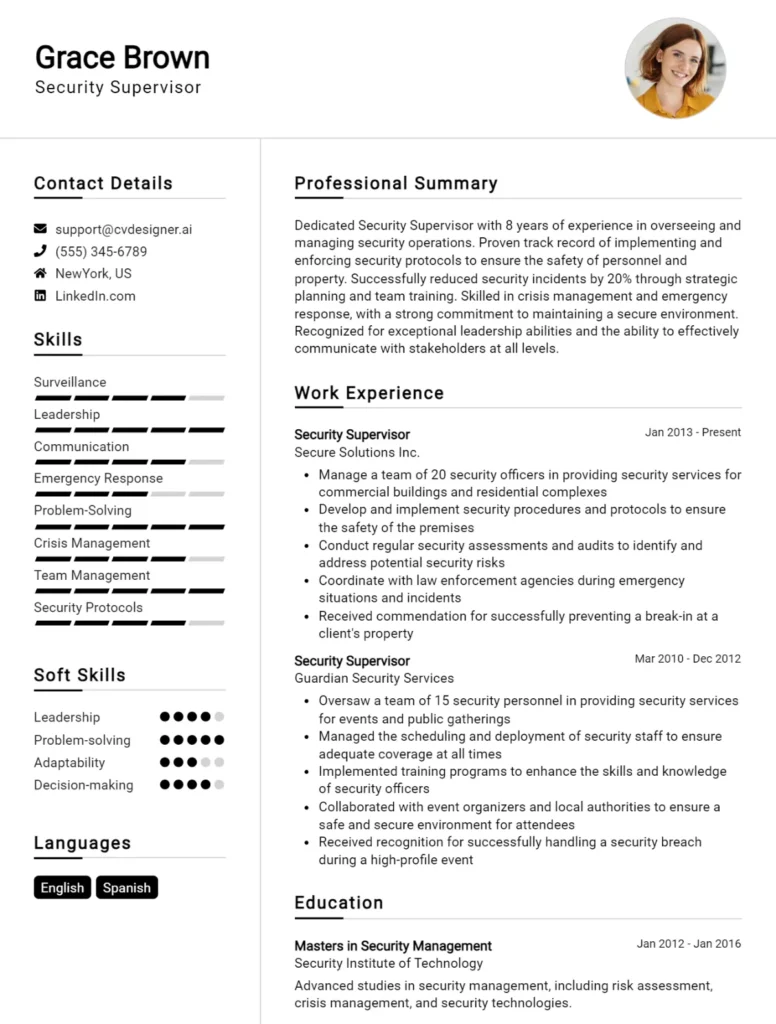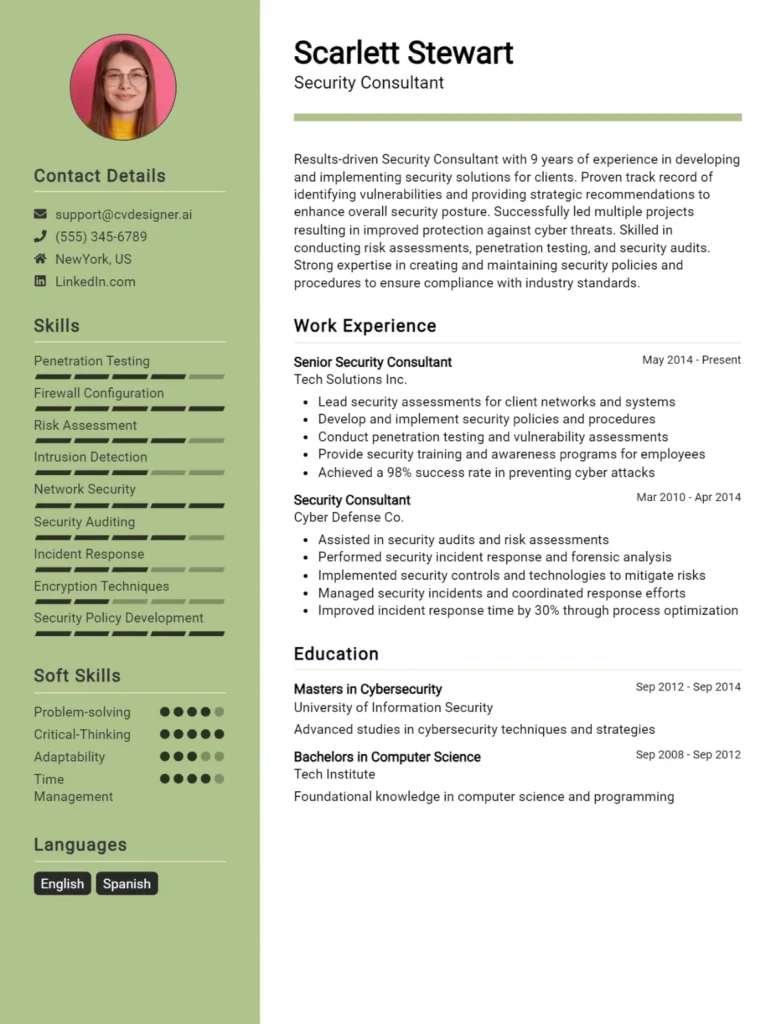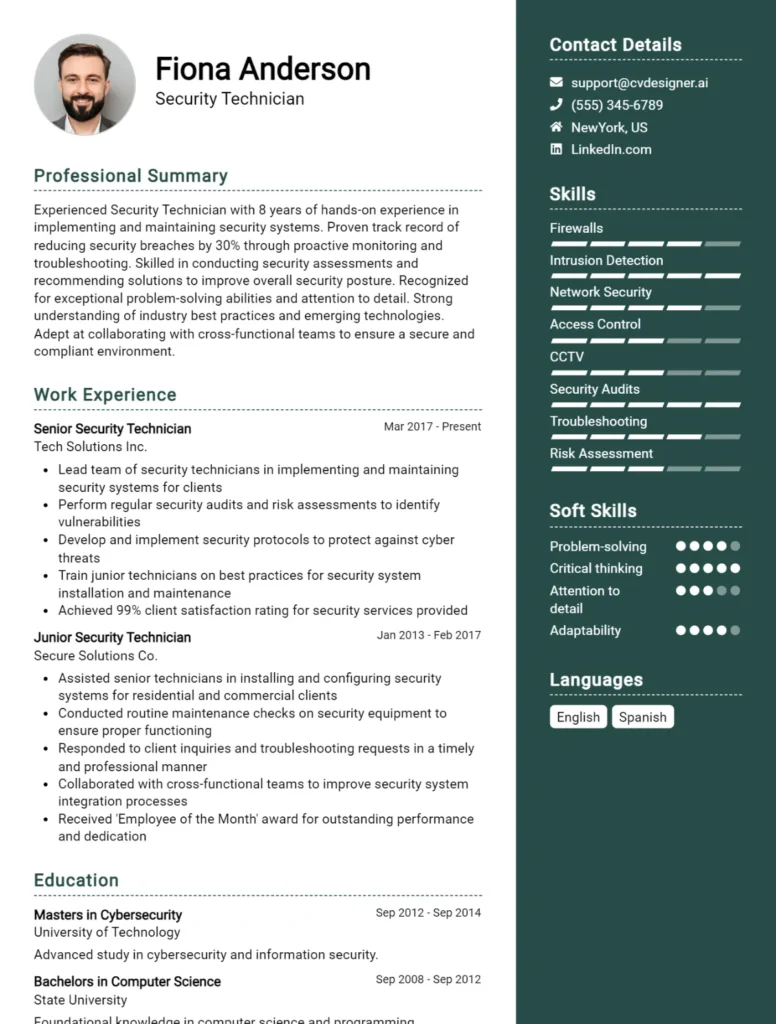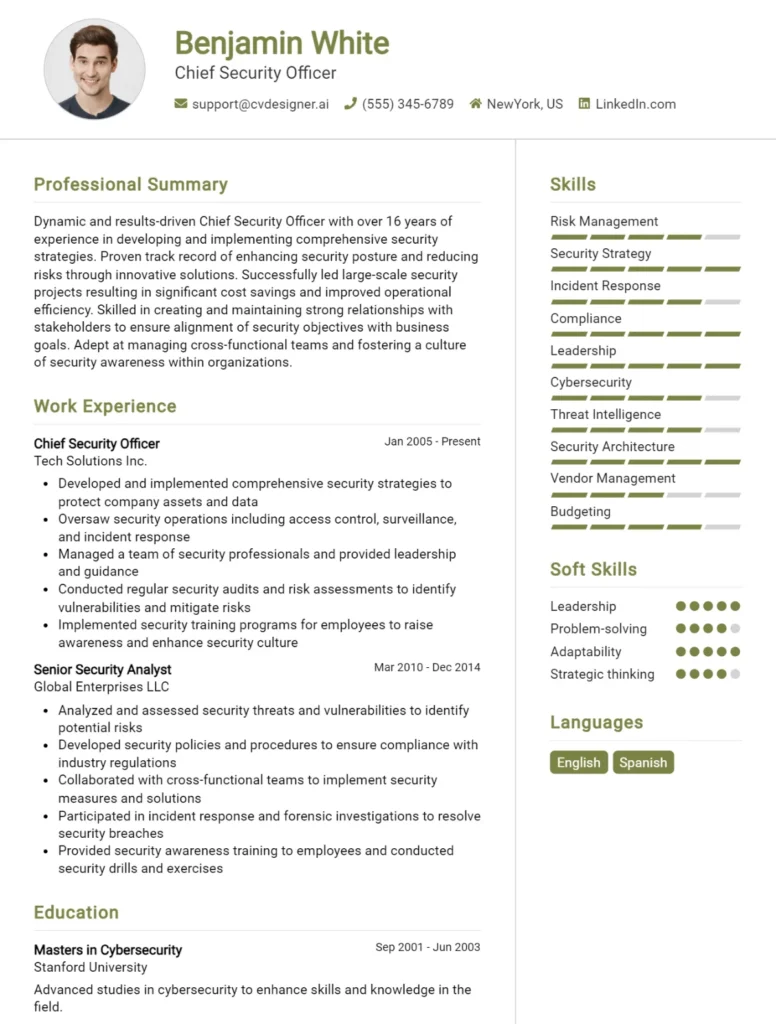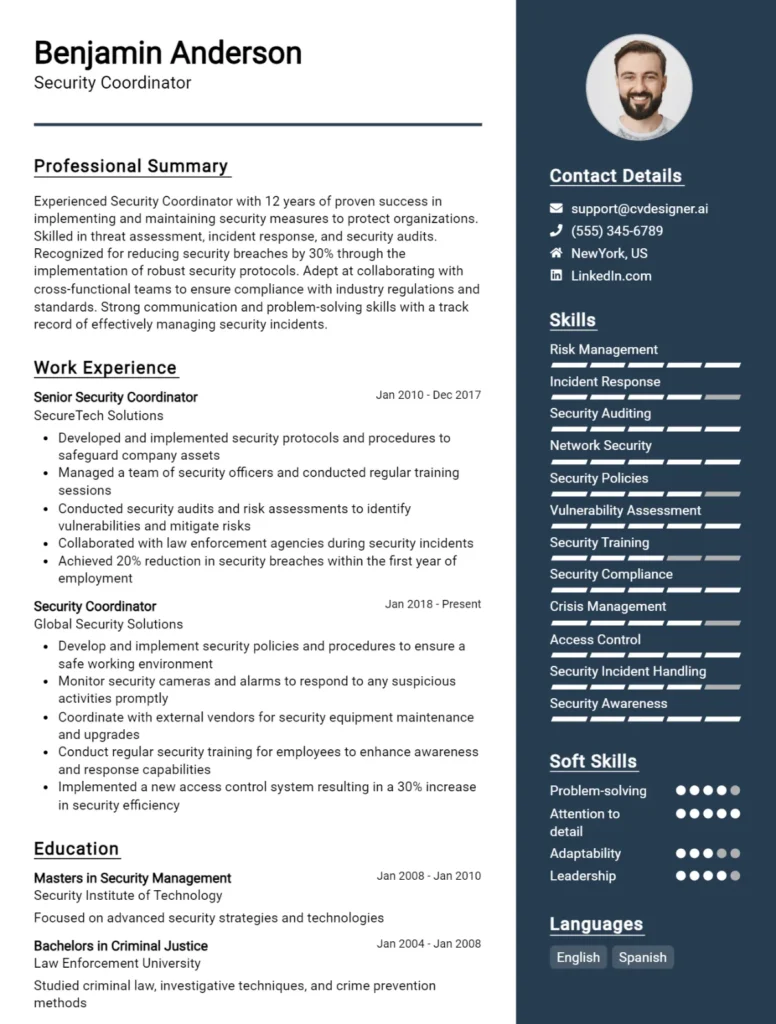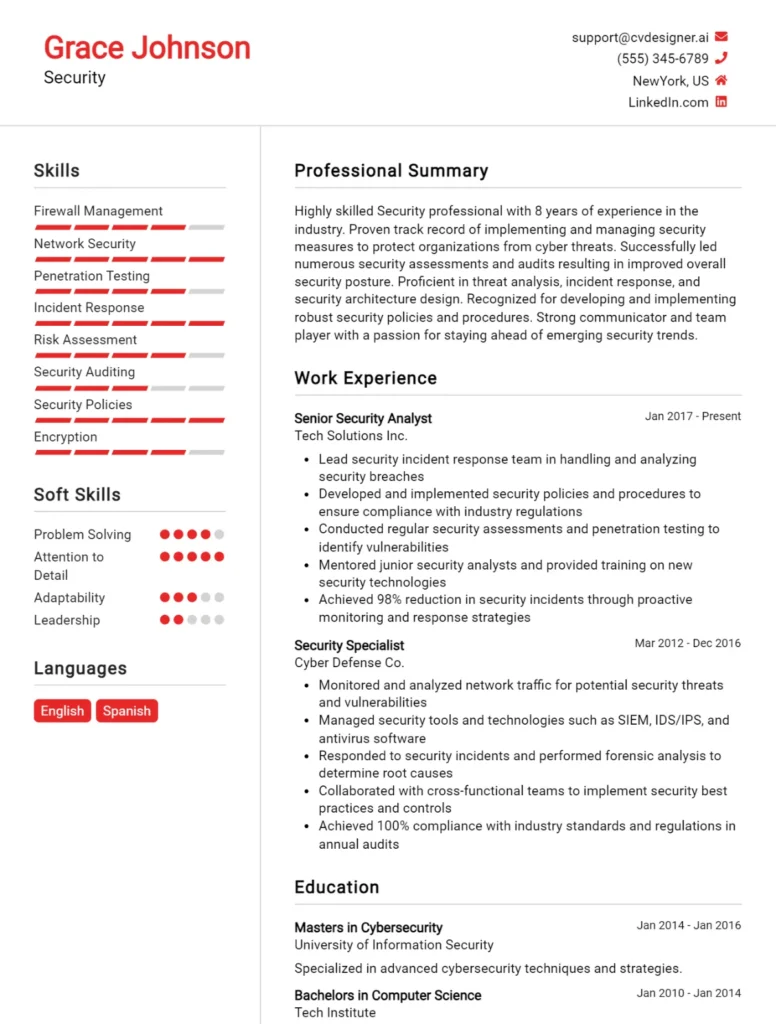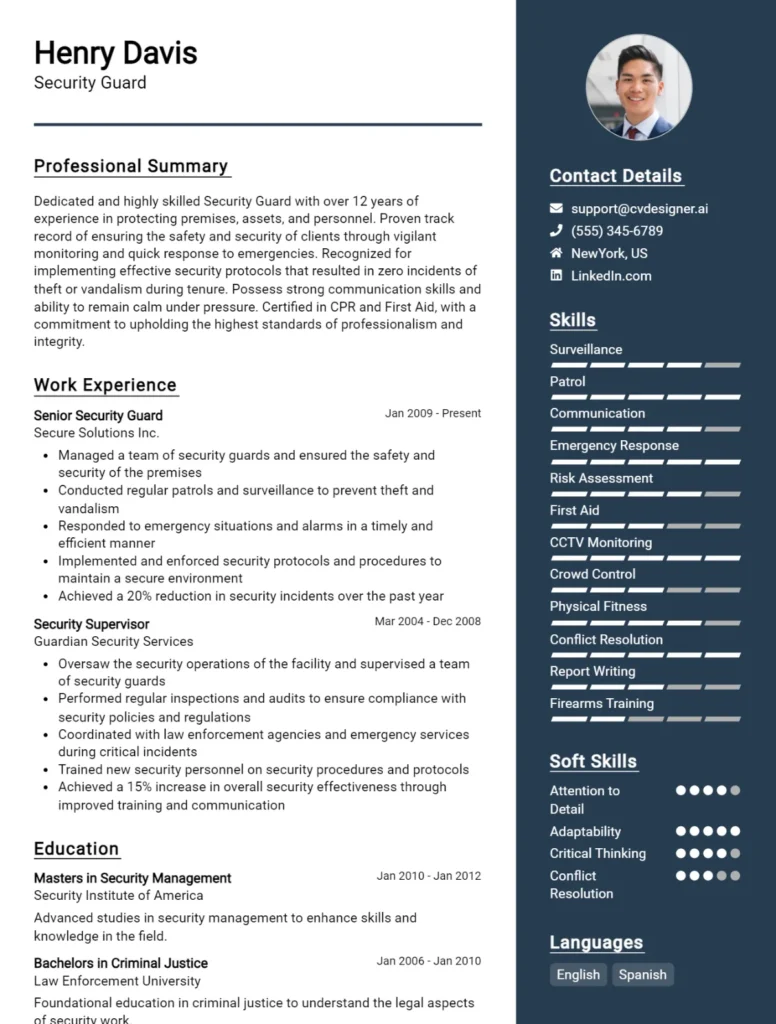Most Popular Security Analyst CV Examples
Explore additional Security Analyst CV samples and guides and see what works for your level of experience or role.
As the digital landscape continues to evolve, the demand for skilled Security Analysts has never been greater. Crafting a compelling CV is essential for anyone looking to stand out in this competitive field. In this comprehensive guide, we will navigate the intricacies of writing a Security Analyst CV that captures your expertise and accomplishments effectively. From highlighting relevant skills to structuring your professional experience, each section of your CV plays a critical role in making a lasting impression on potential employers. By the end of this article, you will be equipped with:
- Essential skills and qualifications to include in your CV
- Tips on tailoring your CV for specific job applications
- Guidance on showcasing your professional experience and achievements
- Strategies for highlighting certifications and technical proficiencies
- An example CV template to inspire your own application
Join us as we delve into the best practices for creating a standout Security Analyst CV that paves the way for your next career opportunity!
What is a Security Analyst CV?
A Security Analyst CV is a crucial document that highlights an individual’s qualifications, skills, and experiences in the field of cybersecurity. The primary functions of a CV for a Security Analyst include showcasing relevant technical expertise, such as proficiency in threat analysis, incident response, and security protocols, as well as illustrating problem-solving abilities and analytical thinking. A well-structured CV not only presents a candidate’s professional background but also reflects their understanding of the importance of security measures in protecting sensitive information and organizational assets. For guidance on creating a compelling CV, refer to this cv writing guide.
The importance of a CV for a Security Analyst extends beyond mere documentation of past roles; it serves as a marketing tool that distinguishes a candidate in a competitive job market. A strong CV can demonstrate a candidate's commitment to continuous learning and adaptation in the rapidly evolving field of cybersecurity. Utilizing tools like a cv maker can streamline the process, ensuring that the final product is professional and tailored to attract potential employers. Ultimately, an effective CV can open doors to opportunities in various sectors, where the demand for skilled Security Analysts continues to grow.
Key Components of a Security Analyst CV
- Contact Information: Include your full name, phone number, email address, and LinkedIn profile to make it easy for employers to reach you.
- Professional Summary: A brief overview of your experience, skills, and what you bring to the role of a Security Analyst. Tailor this section to highlight your strengths and career objectives.
- Key Skills: List relevant skills that demonstrate your capabilities in cybersecurity, such as threat analysis, incident response, and risk assessment. For a comprehensive guide on skills, visit skills.
- Certifications: Highlight any relevant certifications such as Certified Information Systems Security Professional (CISSP), Certified Ethical Hacker (CEH), or CompTIA Security+ that validate your expertise.
- Technical Proficiencies: Specify the tools and technologies you are proficient in, such as firewalls, IDS/IPS systems, SIEM solutions, and scripting languages.
- Work Experience: Detail your previous roles, focusing on responsibilities and achievements related to security analysis. This section should reflect your ability to handle security incidents and implement security measures. For more insights, check out work experience.
- Education: List your educational background, including degrees obtained, institutions attended, and dates of graduation. Focus on relevant fields such as Computer Science or Information Technology.
- Projects: Include specific projects you have worked on that demonstrate your hands-on experience in the field of cybersecurity, such as vulnerability assessments or security audits.
- Professional Affiliations: Mention any memberships in professional organizations like ISACA, (ISC)², or local cybersecurity groups that show your commitment to the field.
- Soft Skills: Highlight essential soft skills such as problem-solving, communication, and teamwork, which are crucial for collaborating with other IT professionals and stakeholders.
- Publications and Presentations: If applicable, include any papers, articles, or presentations you have authored or contributed to in the realm of cybersecurity.
- References: Optionally, indicate that references are available upon request or list professional references who can vouch for your qualifications and work ethic.
Sample Security Analyst CV for Inspiration
[Your Name]
[Your Address]
[City, State, Zip]
[Your Phone Number]
[Your Email Address]
[LinkedIn Profile URL]
Professional Summary
Detail-oriented Security Analyst with over 5 years of experience in information security and risk management. Proven track record in identifying vulnerabilities, implementing security measures, and enhancing organizational security posture. Strong analytical skills complemented by a solid understanding of cybersecurity frameworks and compliance regulations. Adept at collaborating with cross-functional teams to mitigate risks and safeguard sensitive information. Passionate about staying current with emerging threats and security technologies.
Work Experience
Security Analyst
ABC Corporation, City, State
June 2020 - Present
- Conduct thorough security assessments, identifying vulnerabilities and recommending effective remediation strategies to enhance the organization’s security infrastructure.
- Monitor security incidents and respond to alerts, performing thorough root cause analysis and implementing corrective actions.
- Collaborate with IT teams to integrate security best practices into system development and deployment processes.
- Develop and maintain security policies and procedures in compliance with industry standards (ISO 27001, NIST).
- Conduct security training sessions for employees, raising awareness of security best practices and emerging threats.
Junior Security Analyst
XYZ Solutions, City, State
January 2018 - May 2020
- Assisted in the implementation of security measures across networks and systems, reducing potential vulnerabilities.
- Conducted regular security audits and assisted in the development of incident response plans.
- Analyzed security logs and reports to identify trends and anomalies, escalating issues as necessary.
- Supported the deployment of security tools and technologies, including firewalls, intrusion detection systems, and antivirus solutions.
- Participated in security awareness programs, contributing to a culture of security within the organization.
Education
Bachelor of Science in Cybersecurity
University of Technology, City, State
Graduated: May 2017
Skills
- Cybersecurity Frameworks: NIST, ISO 27001, CIS Controls
- Vulnerability Assessment & Management
- Incident Response & Analysis
- Security Information and Event Management (SIEM)
- Network Security & Firewalls
- Risk Assessment & Mitigation
- Strong analytical and problem-solving skills
- Excellent communication and collaboration abilities
Publications
- "Emerging Threats in Cybersecurity: Trends and Solutions," Cybersecurity Journal, Volume 12, Issue 3, March 2023.
- "A Comprehensive Guide to Implementing NIST Cybersecurity Framework," Tech Publication, September 2022.
Certifications
- Certified Information Systems Security Professional (CISSP) - (ISC)²
- Certified Ethical Hacker (CEH) - EC-Council
- CompTIA Security+
- GIAC Security Essentials (GSEC)
References
Available upon request.
Security Analyst CV Writing Tips
When crafting a CV for a Security Analyst position, it's essential to highlight your technical expertise, problem-solving skills, and attention to detail. Tailor your CV to reflect your experience with security protocols, incident response, risk assessment, and compliance standards. Use clear, concise language and quantify your achievements where possible to demonstrate your impact in previous roles. Additionally, ensure your CV is well-organized and easy to read, as this mirrors the meticulous nature required in security analysis.
CV Writing Tips for Security Analysts:
- Tailor Your CV: Customize your CV for each job application by incorporating relevant keywords and skills mentioned in the job description.
- Highlight Certifications: Include any pertinent certifications such as CISSP, CISM, or CEH to showcase your professional qualifications.
- Quantify Achievements: Use metrics to illustrate your impact, such as the percentage reduction in security breaches or the number of incidents managed.
- Showcase Technical Skills: List specific tools and technologies you are proficient in, such as SIEM software, firewalls, intrusion detection systems, or programming languages.
- Detail Relevant Experience: Focus on your previous roles related to security analysis, emphasizing your responsibilities and accomplishments in each position.
- Include Soft Skills: Highlight essential soft skills such as analytical thinking, communication, and teamwork, which are crucial in the field of security.
- Professional Summary: Start with a strong professional summary that encapsulates your career goals and key qualifications in the security domain.
- Keep It Concise: Aim for a CV length of one to two pages, ensuring that every section is relevant and contributes to your overall narrative as a Security Analyst.
Security Analyst CV Summary Examples
As a Security Analyst, your CV summary is crucial in showcasing your skills, experience, and commitment to cybersecurity. A well-crafted summary can capture the attention of potential employers and highlight your qualifications effectively. Here are several examples of impactful CV summaries for a Security Analyst role:
“Detail-oriented Security Analyst with over 5 years of experience in identifying vulnerabilities and implementing robust security measures. Proven track record of enhancing network security protocols and conducting thorough risk assessments to ensure data integrity and compliance with industry standards.”
“Dynamic Security Analyst with a strong background in threat detection and incident response. Skilled in utilizing advanced security tools and methodologies to safeguard sensitive information, with a commitment to staying ahead of emerging cyber threats and ensuring organizational resilience.”
“Experienced Security Analyst with expertise in analyzing security systems and developing strategies to mitigate potential risks. Adept at collaborating with cross-functional teams to enhance security posture and implement best practices in line with regulatory requirements.”
“Proactive Security Analyst with a passion for cybersecurity and a knack for identifying and resolving security issues. Extensive experience in vulnerability assessments, penetration testing, and security audits, dedicated to protecting organizational assets from cyber threats.”
“Results-driven Security Analyst with a comprehensive understanding of security frameworks and technologies. Demonstrated ability to analyze and improve security architectures, providing actionable insights to enhance data protection and ensure compliance across diverse environments.”
Build a Strong Experience Section for Your Security Analyst CV
As a Security Analyst, showcasing your experience effectively is crucial to demonstrate your expertise in protecting sensitive information and mitigating security risks. Below are examples of strong work experience descriptions that highlight key responsibilities, achievements, and skills relevant to the role of a Security Analyst.
- Conducted comprehensive security assessments and risk analyses, identifying vulnerabilities and implementing effective mitigation strategies that reduced potential security threats by 30%.
- Monitored network traffic and security alerts using SIEM tools, enabling the rapid detection and response to security incidents, which resulted in a 40% decrease in response time to potential breaches.
- Developed and enforced security policies and procedures in compliance with industry regulations (GDPR, HIPAA), leading to successful audits and improved organizational security posture.
- Collaborated with IT teams to design and implement robust security architectures and controls for cloud-based applications, enhancing data protection and compliance with best practices.
- Led incident response efforts for security breaches, conducting forensic investigations to determine the cause and impact, and presenting findings to senior management to inform future security strategies.
- Provided training and support to employees on cybersecurity awareness, significantly increasing staff engagement and reducing phishing susceptibility by over 50%.
- Analyzed security logs and incident reports to identify patterns and trends, delivering actionable insights that informed system improvements and reduced the likelihood of future incidents.
- Assisted in the implementation of advanced security technologies, such as intrusion detection systems (IDS) and endpoint protection solutions, resulting in a 25% increase in threat detection capabilities.
Security Analyst CV Education Examples
As a Security Analyst, a strong educational background is essential for understanding the various aspects of cybersecurity, risk management, and information technology. Below are several examples of relevant educational qualifications that can enhance a candidate's profile in this field:
- Bachelor of Science in Cybersecurity
This degree program focuses on the principles of securing networks, systems, and data. It covers topics such as cryptography, ethical hacking, and network security protocols, providing a solid foundation for a career as a Security Analyst. - Bachelor of Science in Information Technology
An IT degree offers a broad understanding of computer systems and networks. Courses in system administration, database management, and programming equip Security Analysts with the technical skills needed to protect organizational assets. - Master of Science in Information Assurance
This advanced degree delves deeper into the policies and practices necessary for protecting information systems. Topics such as risk assessment, incident response, and compliance are typically included, making it highly relevant for Security Analysts. - Bachelor of Science in Computer Science
A degree in computer science provides a strong grasp of algorithms, software development, and system architecture. This knowledge is critical for Security Analysts who need to understand the inner workings of applications and systems to identify vulnerabilities. - Certification in Certified Information Systems Security Professional (CISSP)
While not a degree, obtaining a CISSP certification demonstrates a high level of expertise in information security. It covers a wide range of topics, including security and risk management, asset security, and security architecture, which are crucial for a Security Analyst's role.
Skills to Highlight in Your Security Analyst CV
As a Security Analyst, possessing a blend of both soft and hard skills is crucial for effectively safeguarding an organization's information systems. A strong CV should reflect not only technical expertise but also the interpersonal abilities that enable collaboration and effective communication within a team and across departments. Below is a list of essential skills that can enhance your profile as a Security Analyst.
Soft Skills:
- Critical Thinking
- Attention to Detail
- Problem-Solving
- Communication Skills
- Team Collaboration
- Adaptability
- Time Management
- Analytical Mindset
- Conflict Resolution
- Ethical Judgment
Hard Skills:
- Knowledge of Security Protocols and Standards (e.g., ISO 27001, NIST)
- Proficiency in Security Information and Event Management (SIEM) tools
- Familiarity with Network Security Concepts
- Experience in Incident Response and Management
- Understanding of Vulnerability Assessment Tools
- Skills in Penetration Testing and Risk Assessment
- Proficiency in Security Software (e.g., firewalls, antivirus)
- Knowledge of Encryption and Cryptography
- Familiarity with Regulatory Compliance (e.g., GDPR, HIPAA)
- Experience with Cloud Security Solutions
Security Analyst CV Format
As a Security Analyst, crafting a well-structured CV is essential to showcase your skills and experiences effectively. The best format for your CV can vary depending on your level of experience, whether you're a recent graduate, a mid-level professional, or an experienced specialist. Understanding the nuances of each format will help you present your qualifications in the most compelling way.
For entry-level Security Analysts, a chronological format is often recommended. This highlights your education and any internships or relevant projects. For mid-level professionals, a combination format that emphasizes both skills and work history can be advantageous. Experienced analysts may benefit from a functional format that showcases their extensive expertise and accomplishments prominently.
- Focus on relevant certifications such as Certified Information Systems Security Professional (CISSP) or Certified Ethical Hacker (CEH).
- Highlight specific technical skills, including familiarity with security tools, threat analysis, and incident response.
- Include measurable achievements, such as reducing security incidents by a percentage or successfully implementing a new security protocol.
- Tailor your CV to the job description, using keywords that align with the requirements of the position.
- Keep your CV concise, ideally one to two pages, ensuring easy readability for hiring managers.
- Utilize a clean, professional layout that enhances the visual appeal and organization of your information.
For more detailed guidance on CV formatting, you can visit cv format.
Common Mistakes to Avoid in a Security Analyst CV
When applying for a position as a Security Analyst, your CV is your first opportunity to make a strong impression on potential employers. It is essential to present your skills, experience, and qualifications clearly and effectively. However, many candidates make common mistakes that can undermine their chances of landing an interview. By avoiding these pitfalls, you can enhance the professionalism and impact of your CV, ensuring that you stand out in a competitive job market.
- Overloading with jargon: Using excessive technical language without context can alienate recruiters who may not be familiar with all the terms.
- Neglecting soft skills: Focusing solely on technical abilities while ignoring interpersonal skills can give an incomplete picture of your capabilities.
- Lack of quantifiable achievements: Failing to include specific metrics or examples of past successes can make your contributions seem less impactful.
- Generic objective statements: Using a one-size-fits-all objective can come across as insincere; tailor it to the specific role and organization.
- Ignoring formatting: A cluttered or poorly organized CV can be hard to read; ensure it's clean and professional.
- Listing irrelevant experience: Including jobs or skills that are not pertinent to security analysis can dilute the focus of your CV.
- Failing to update regularly: Not reflecting your most recent experiences or skills can make your CV appear outdated.
- Omitting certifications: Failing to highlight relevant certifications, such as CISSP or CEH, can lead to missed opportunities.
- Lack of customization: Not tailoring your CV for each application can prevent you from addressing the specific needs of the employer.
- Spelling and grammar errors: Neglecting to proofread can create a negative impression and suggest a lack of attention to detail.
Key Takeaways for a Security Analyst CV
- Start with a strong professional summary that highlights your expertise in cybersecurity, risk assessment, and threat mitigation.
- Include relevant certifications such as CISSP, CEH, or Security+, showcasing your commitment to professional development.
- List technical skills prominently, including knowledge of security tools, firewalls, intrusion detection systems, and network protocols.
- Detail your experience with incident response and mitigation strategies, emphasizing your role in identifying and resolving security breaches.
- Highlight your understanding of regulatory compliance standards (e.g., GDPR, HIPAA) and your experience in implementing these within organizations.
- Showcase your analytical skills by describing how you conduct security audits and vulnerability assessments to identify potential risks.
- Mention any experience with security frameworks like NIST or ISO 27001 to demonstrate your ability to align with industry best practices.
- Provide examples of collaborating with cross-functional teams to educate and promote security awareness within the organization.
- Tailor your CV to the job description, using keywords that reflect the specific requirements of the Security Analyst role you are applying for.
- Utilize cv templates to create a visually appealing and organized CV layout.
- Consider using a cv builder for a streamlined process in crafting your CV, ensuring that all essential elements are included.
- Enhance your application with a compelling cover letter using cover letter templates that align with your CV and the job role.
Build your CV in minutes
Use an AI-powered cv builder and have your cv done in 5 minutes. Just select your template and our software will guide you through the process.
